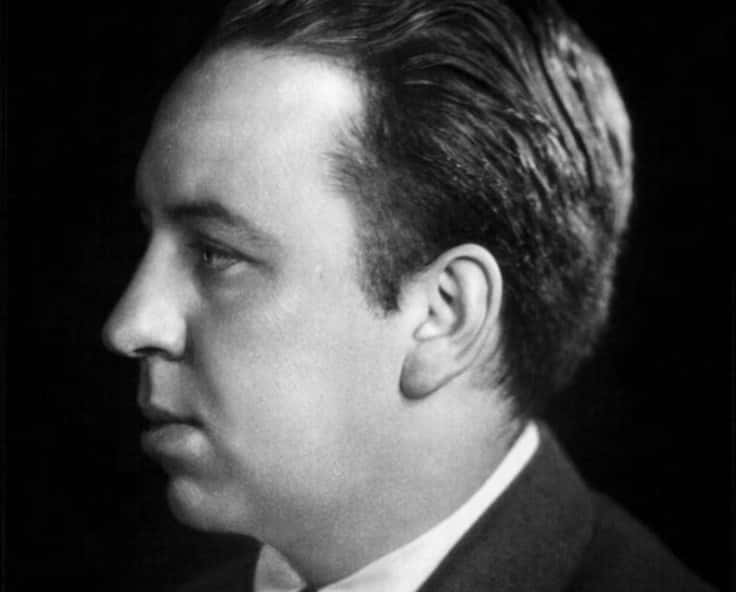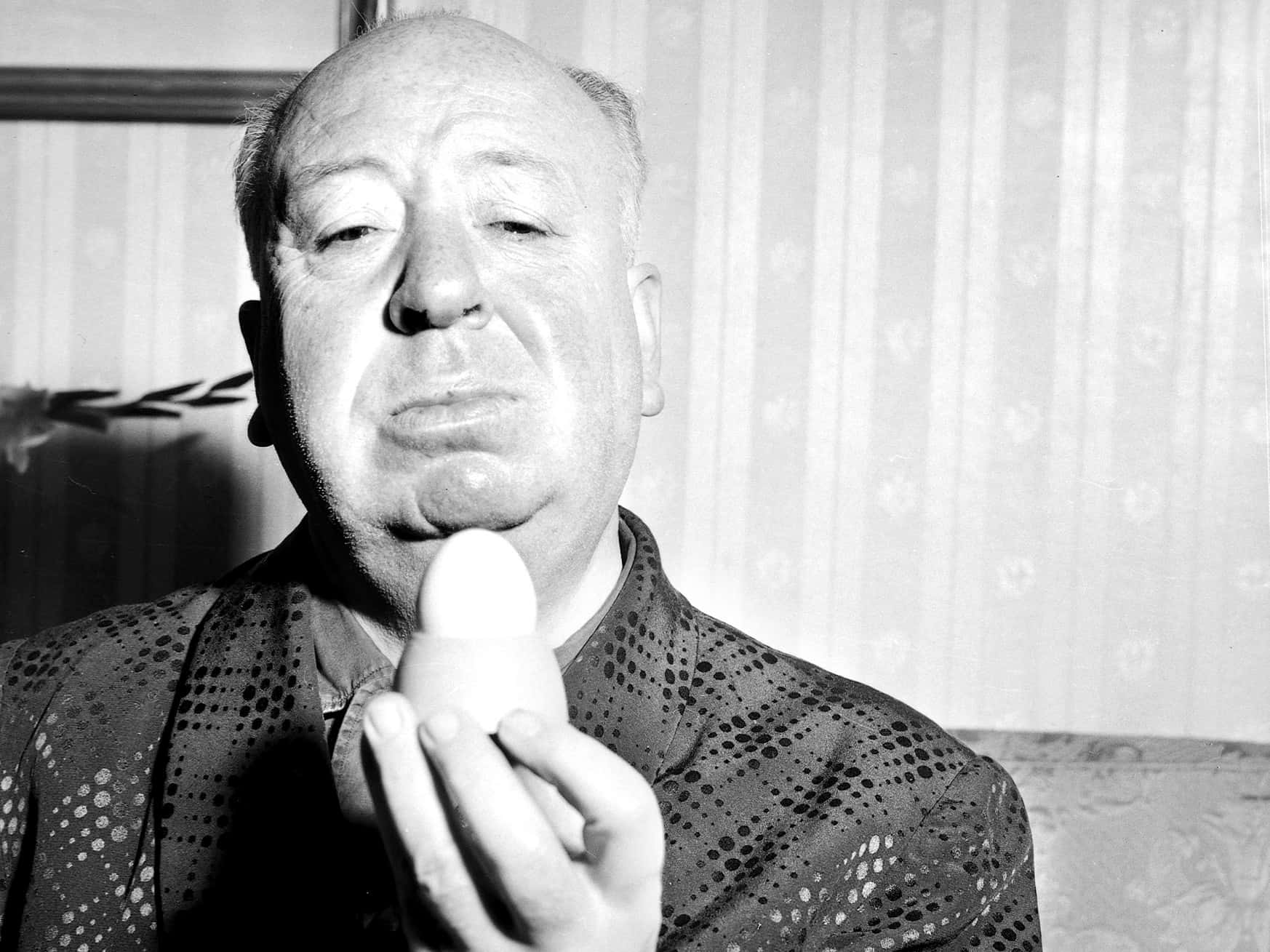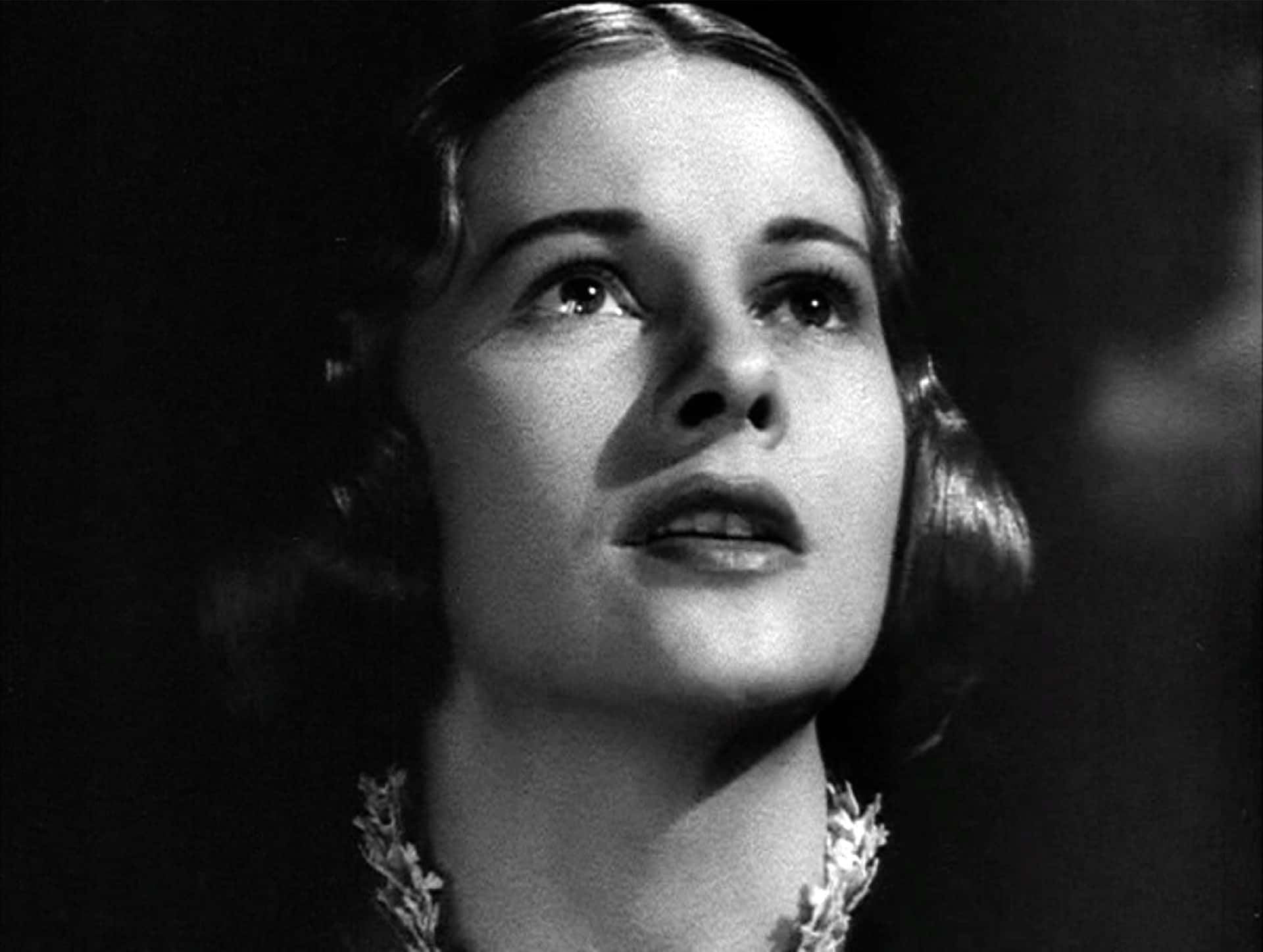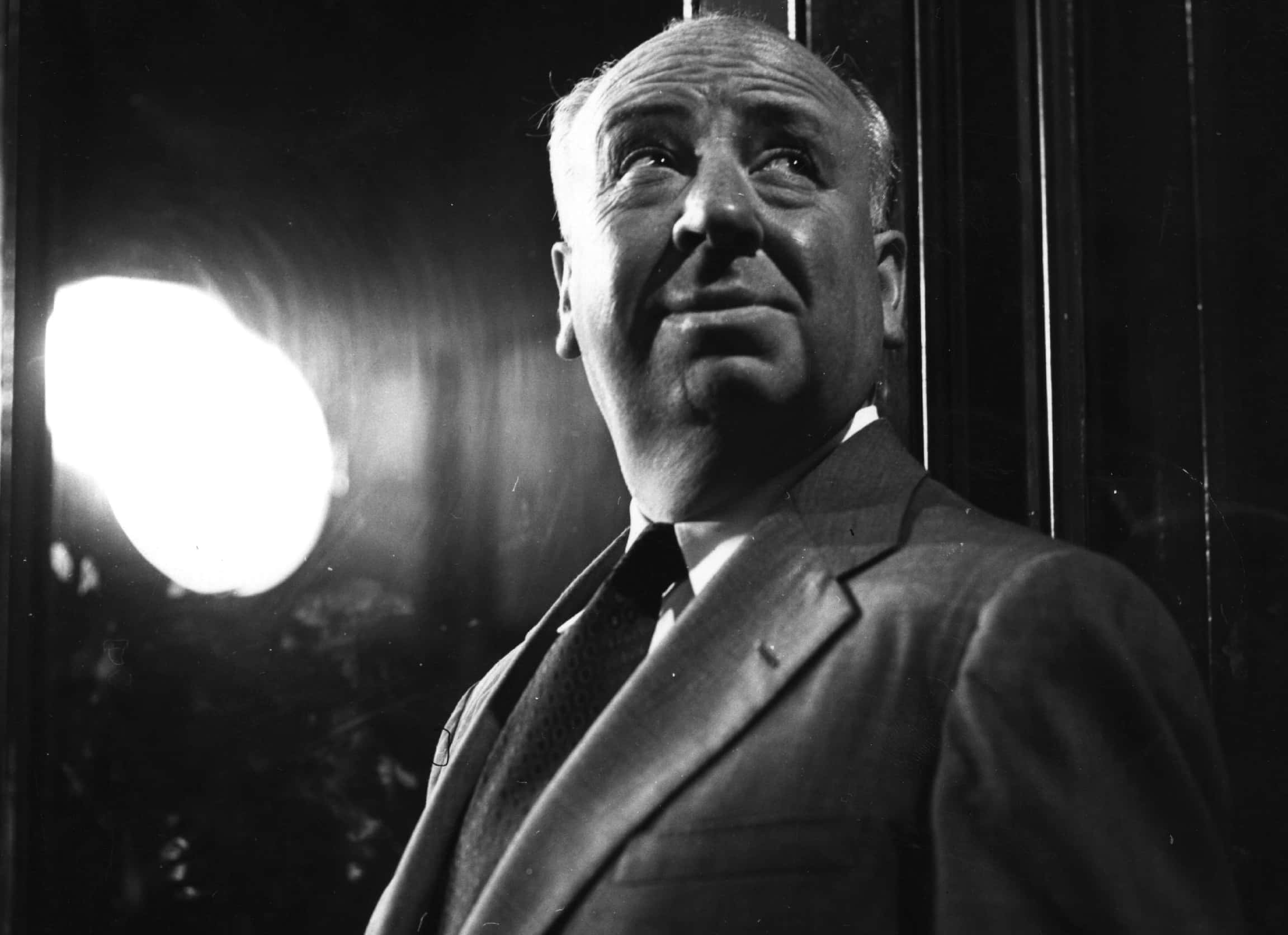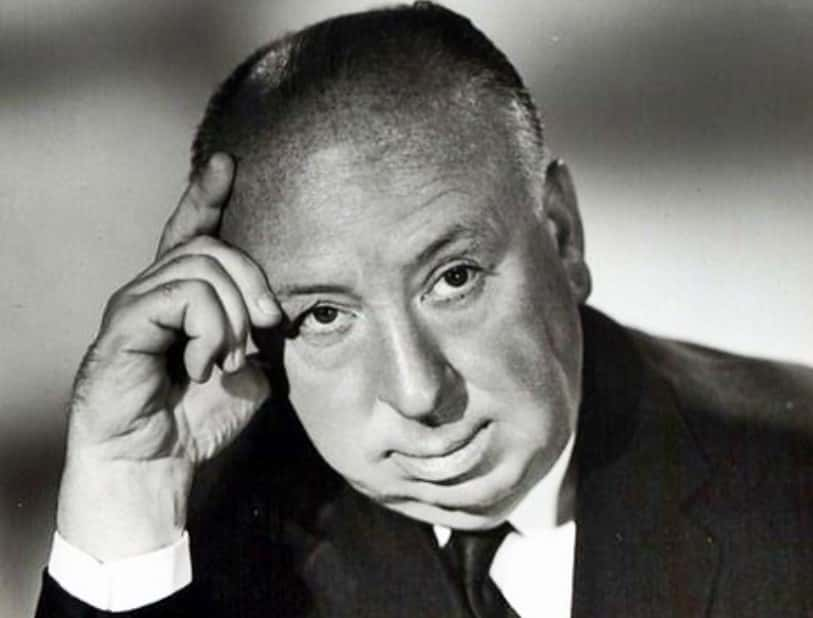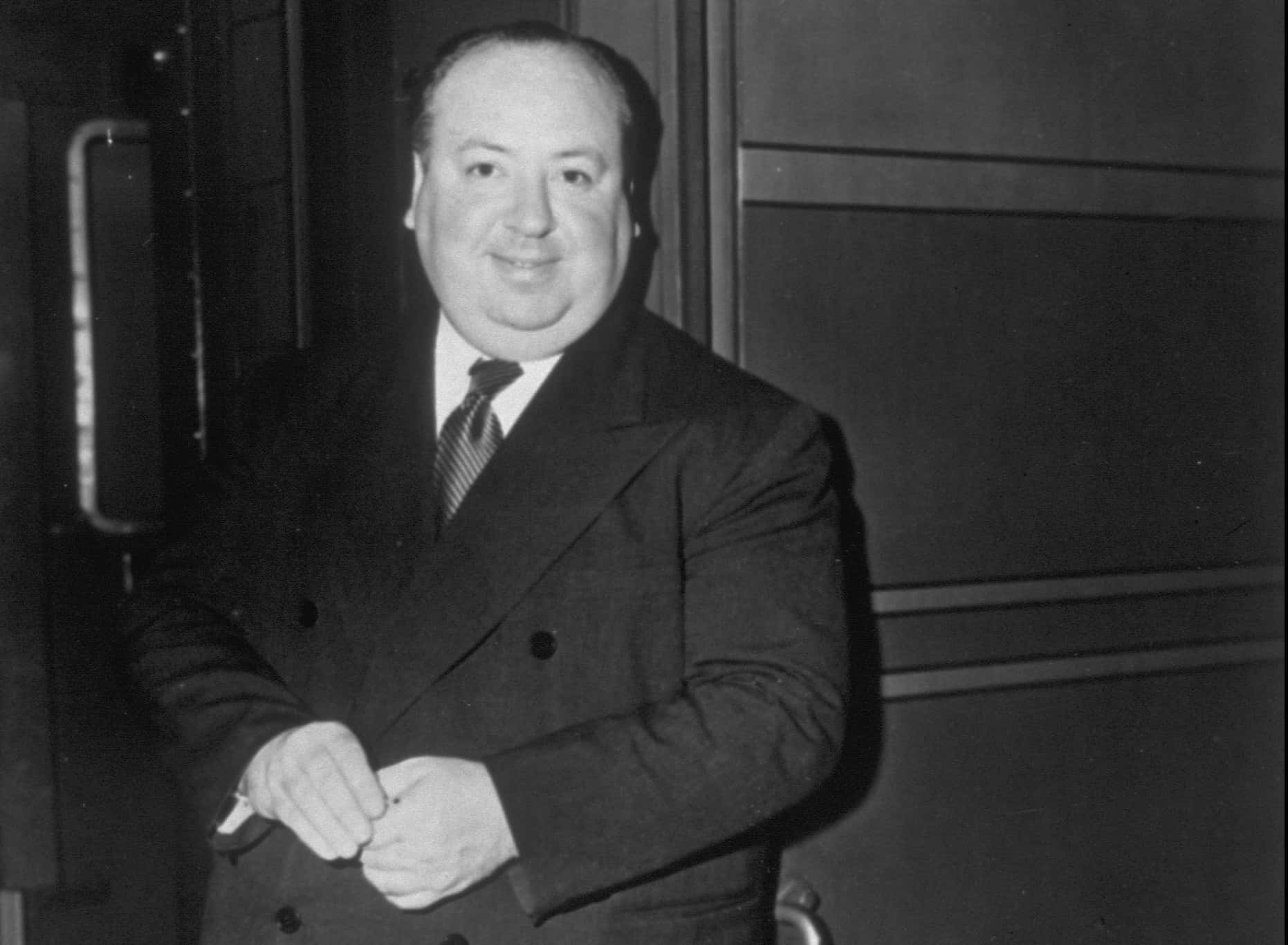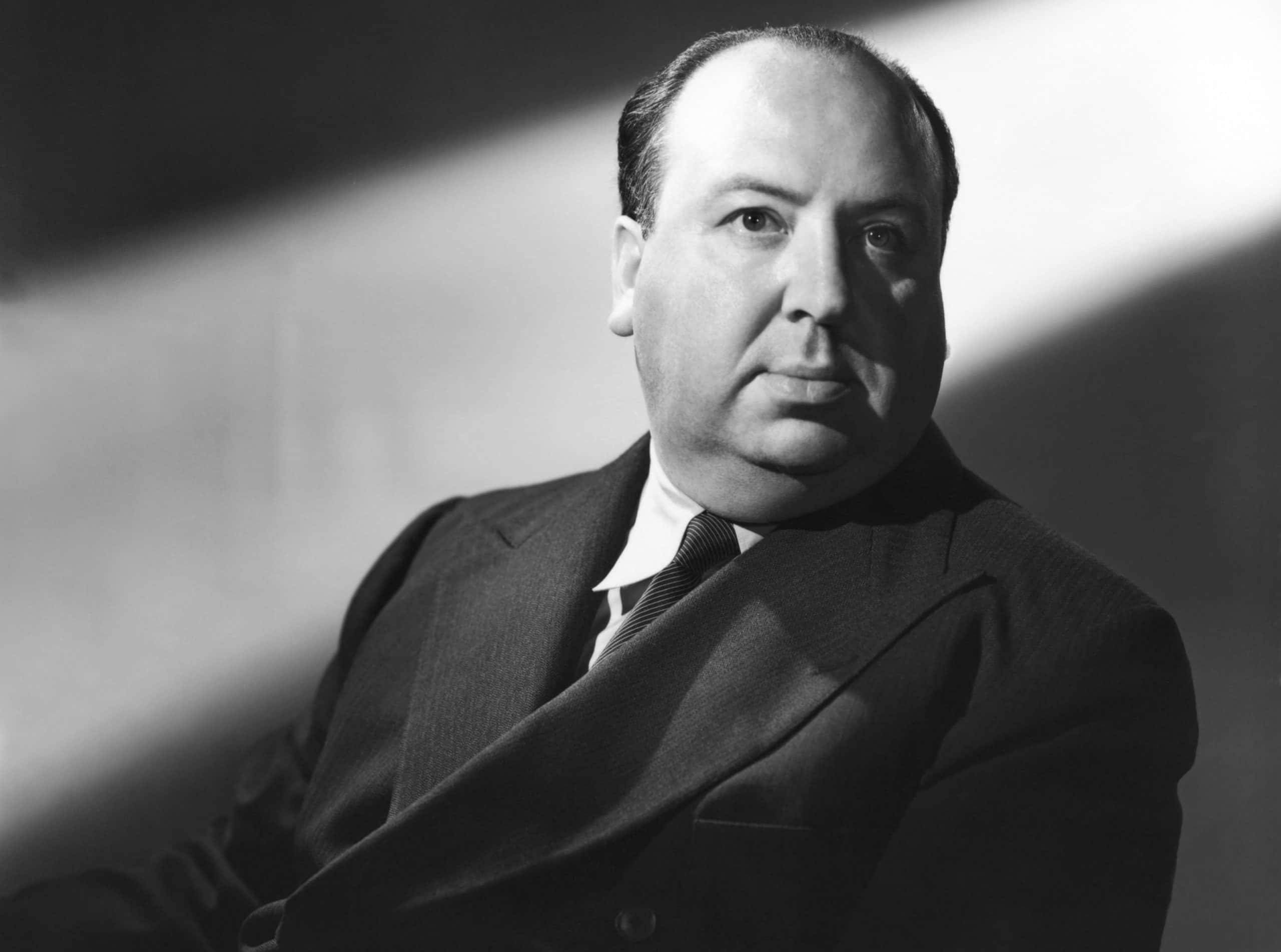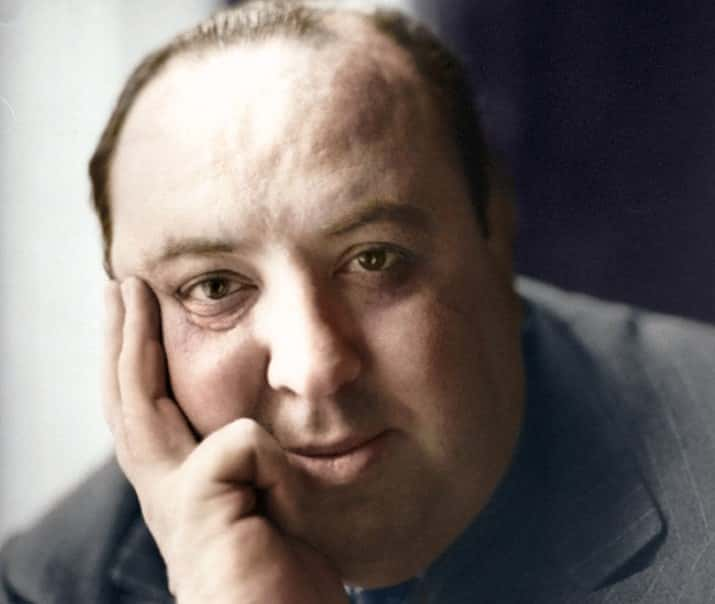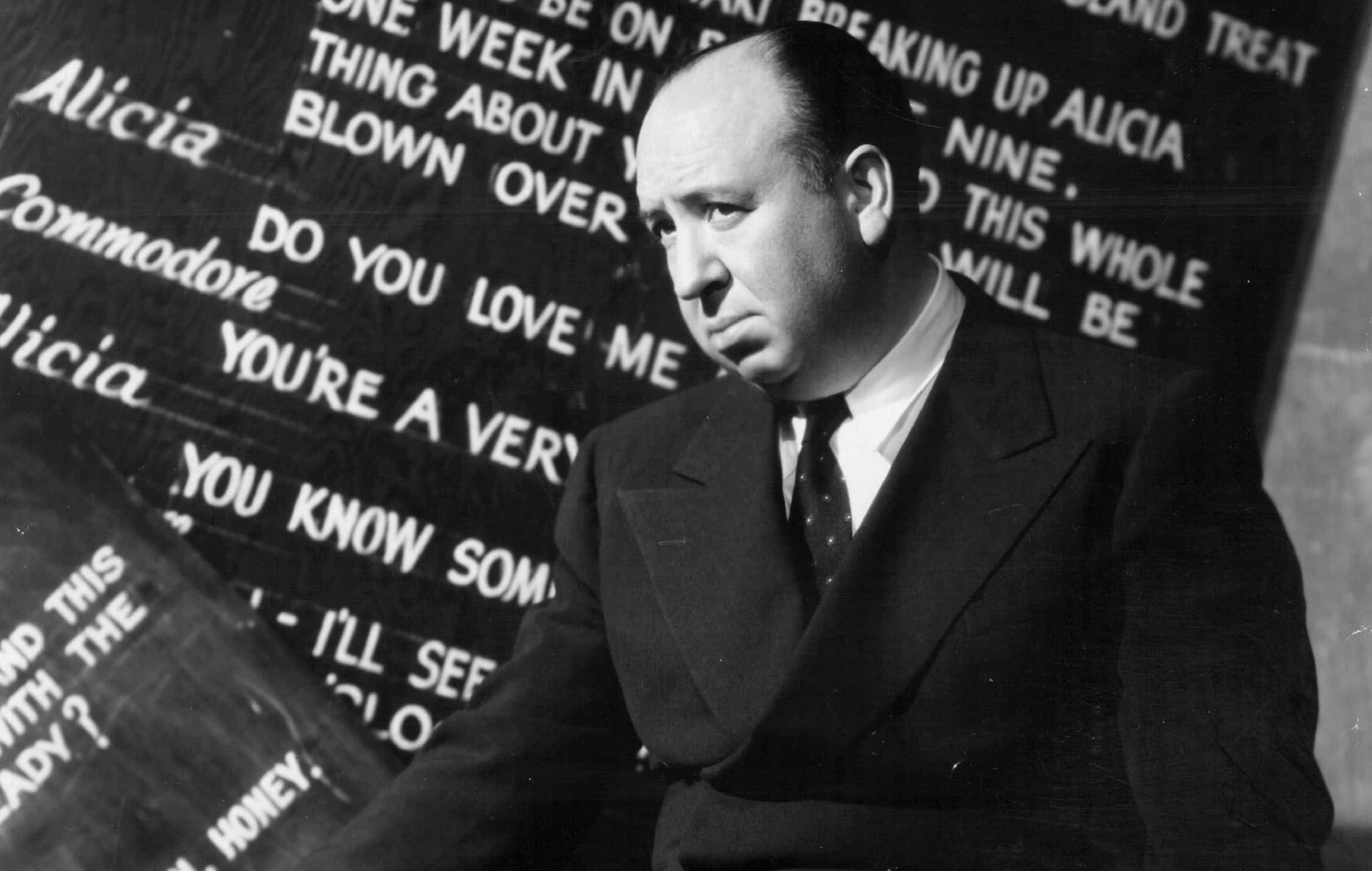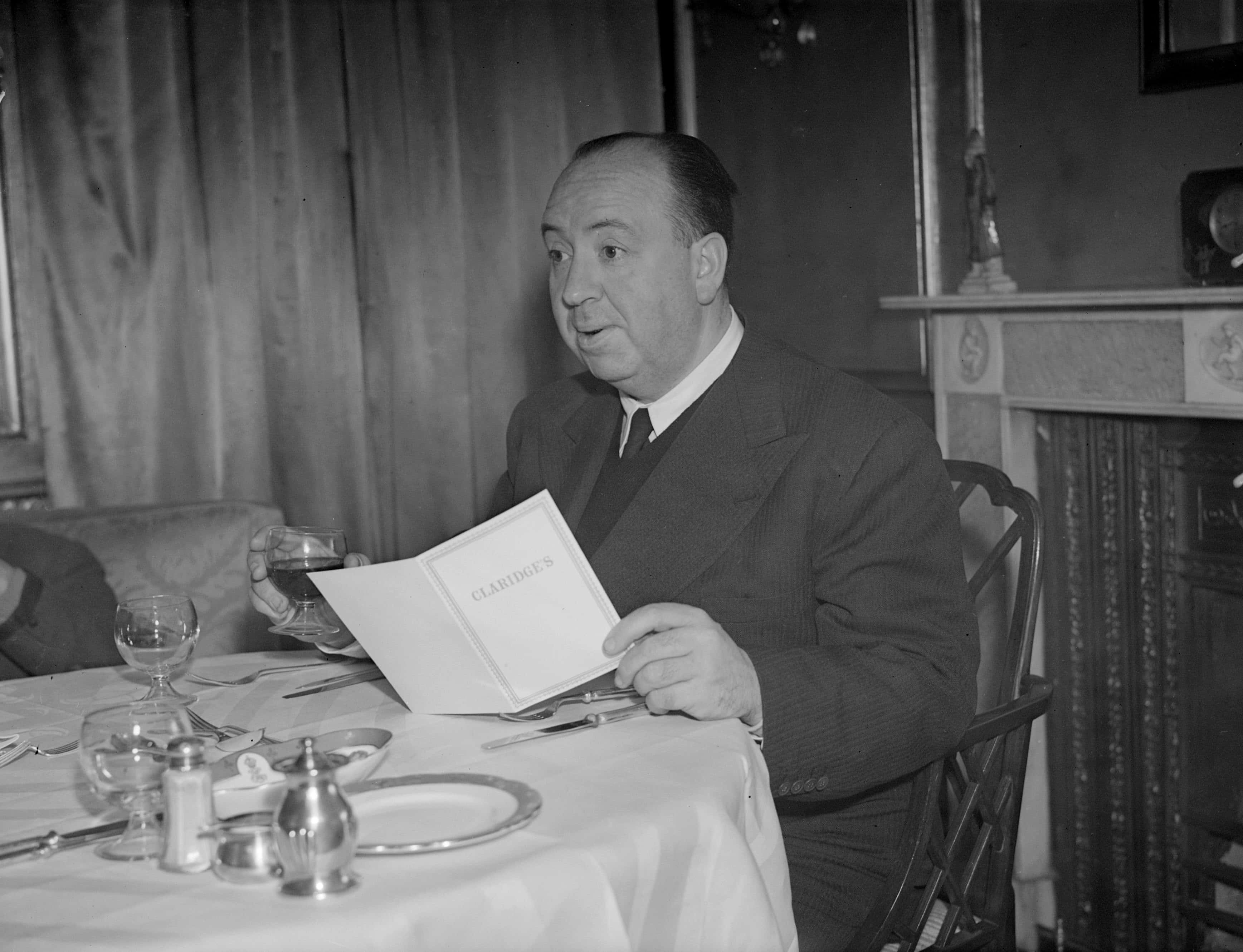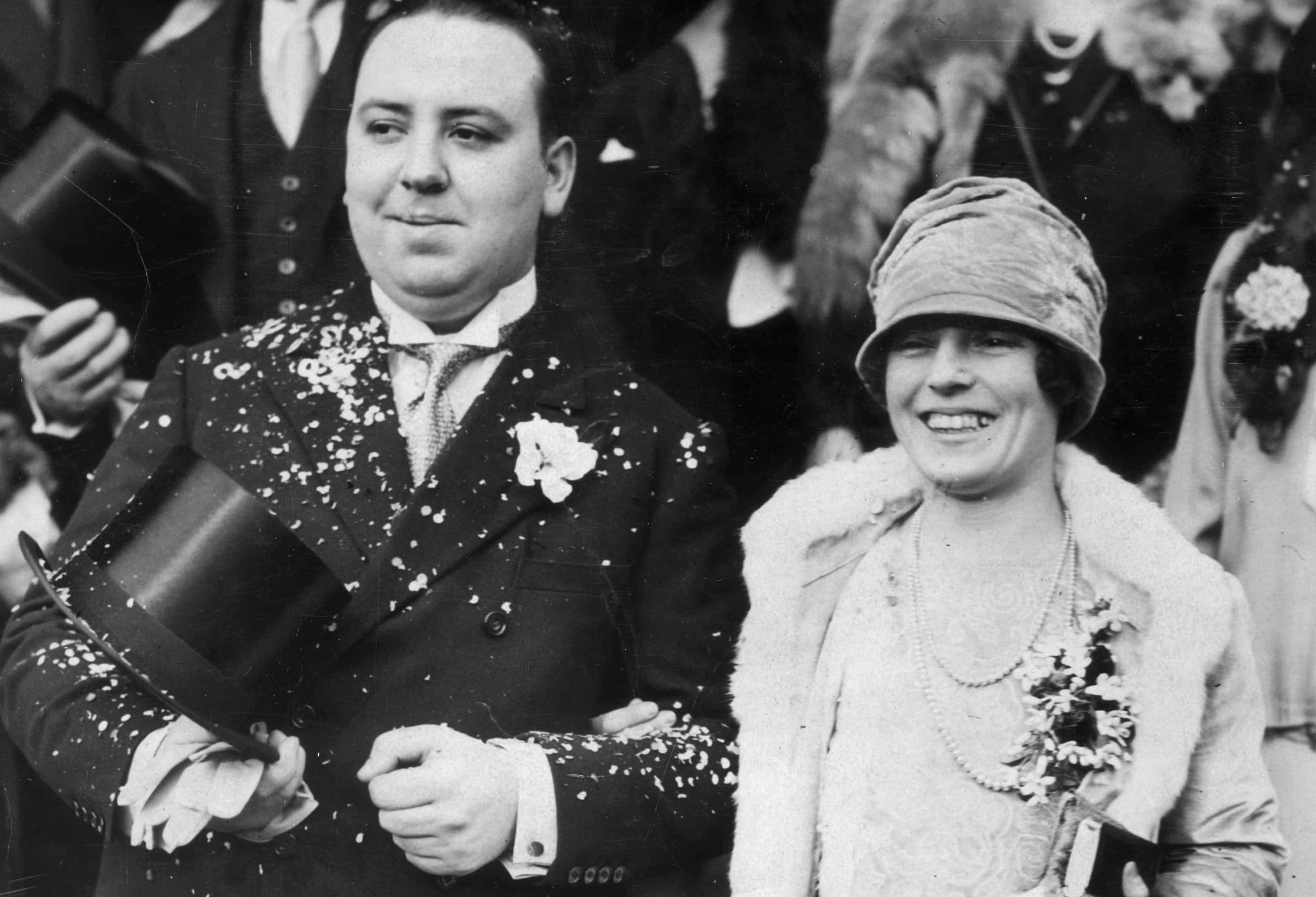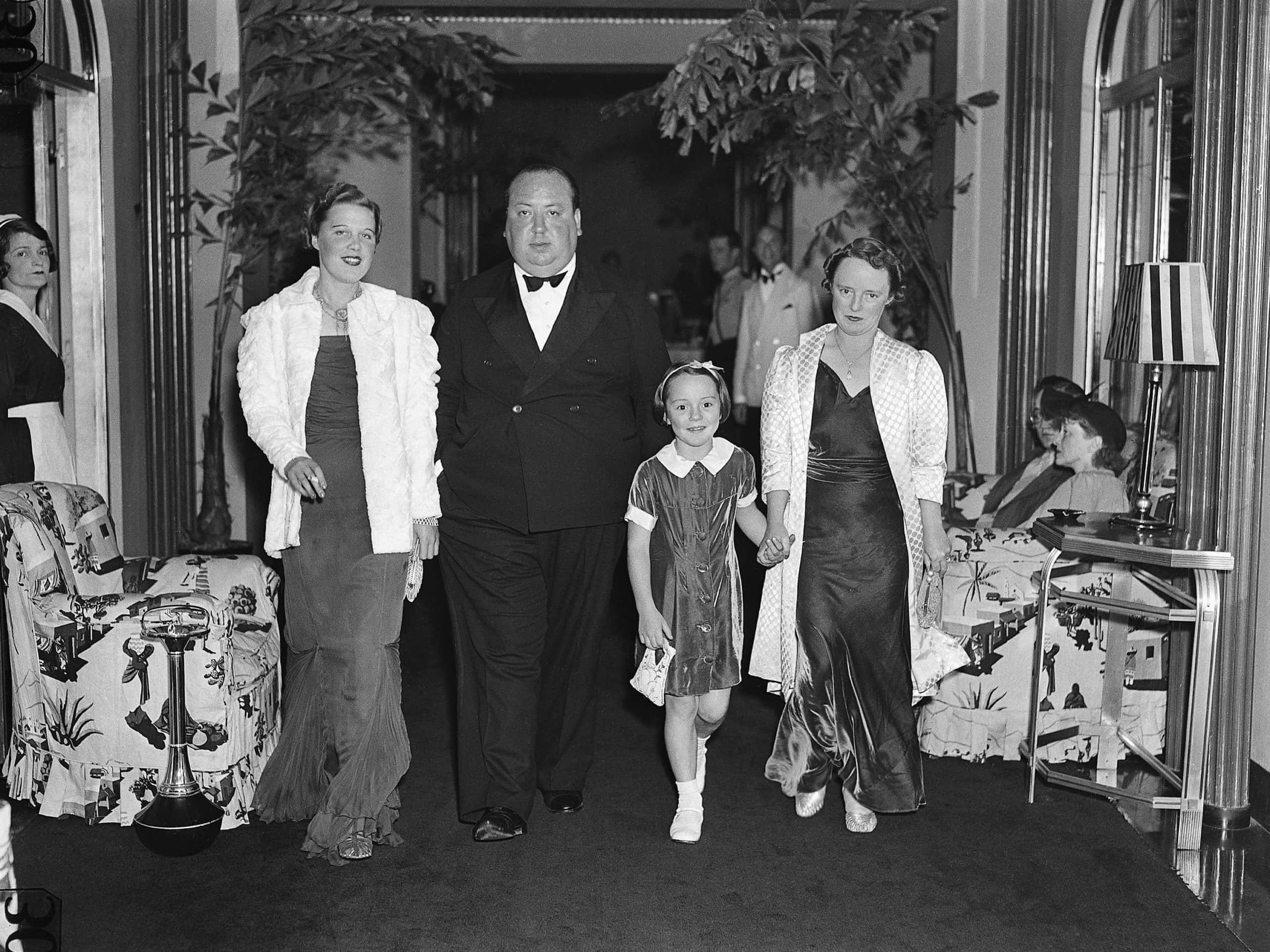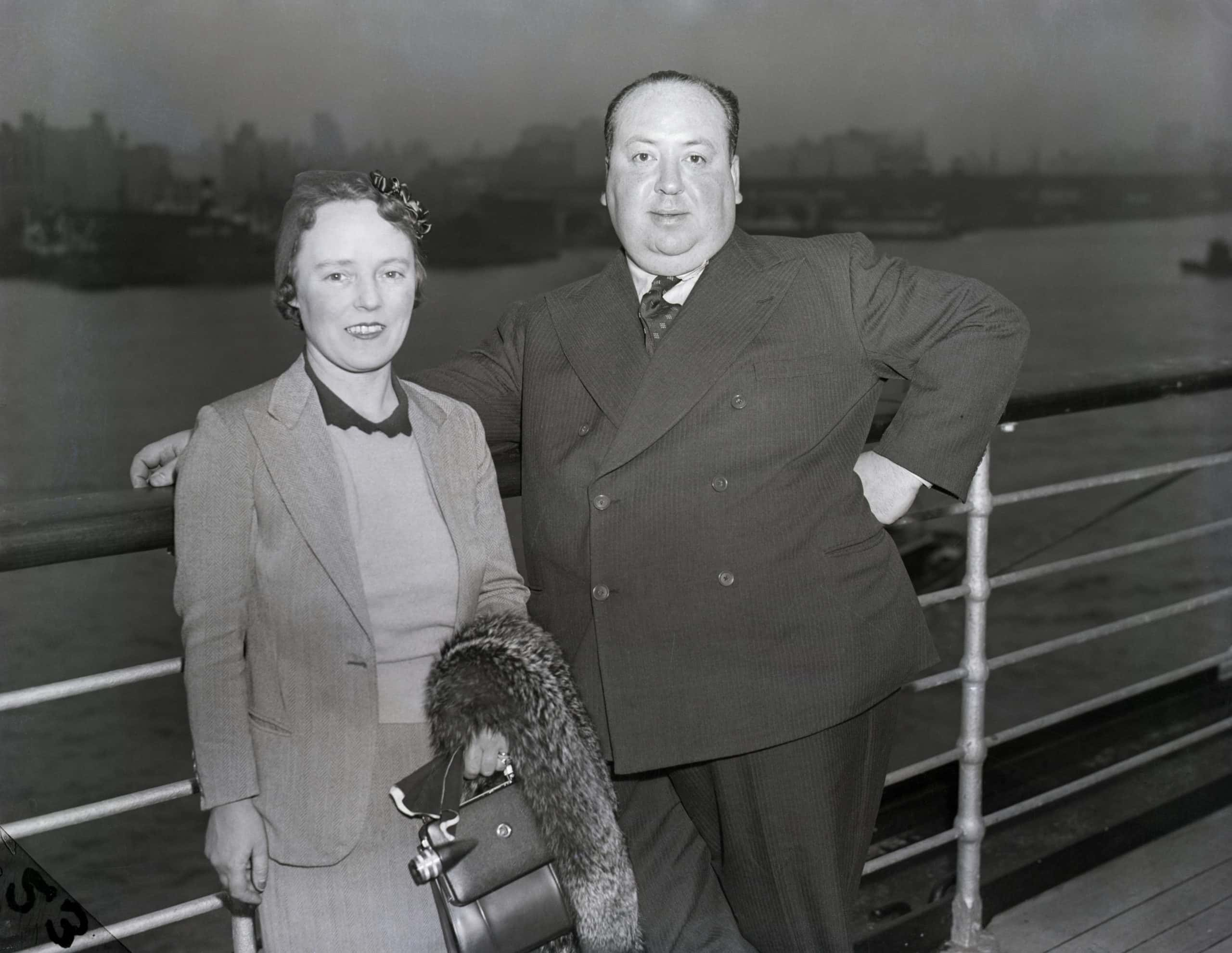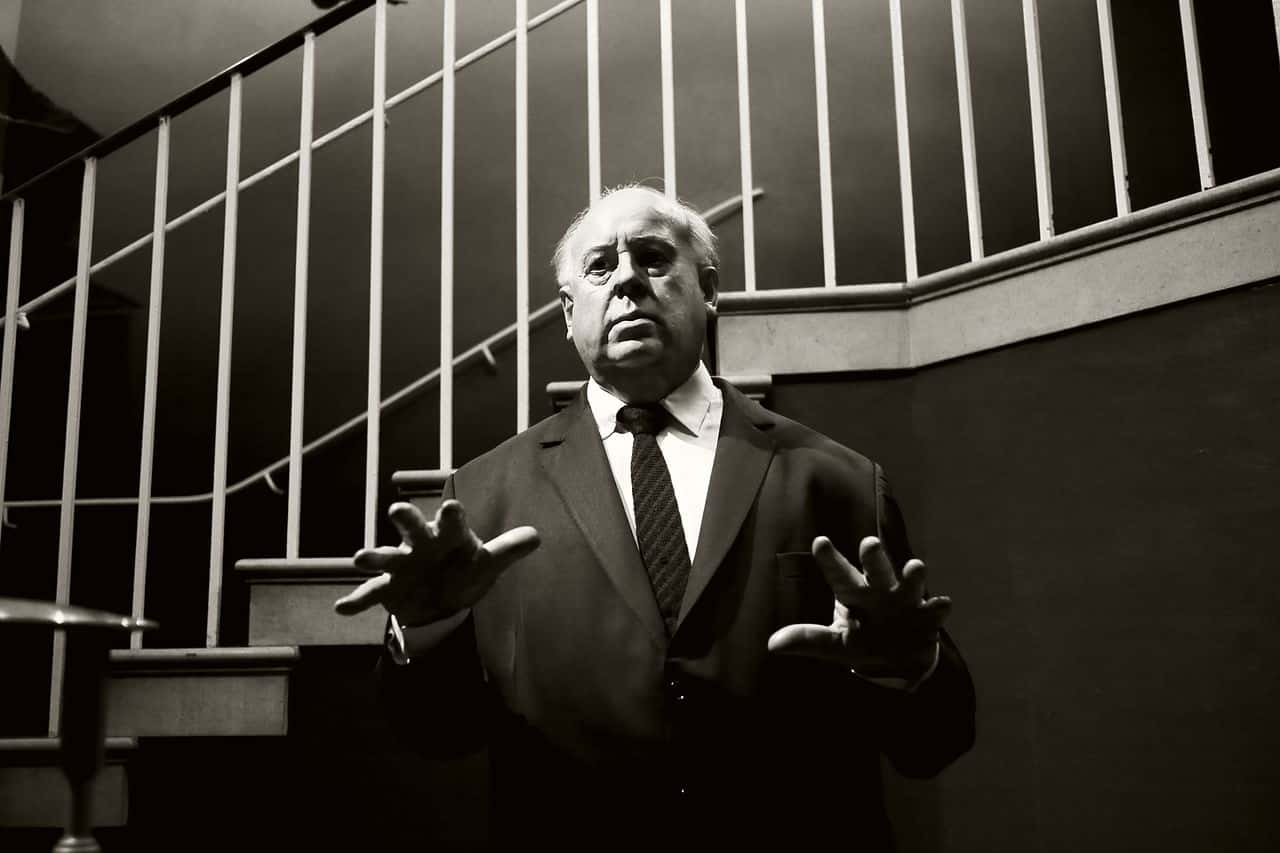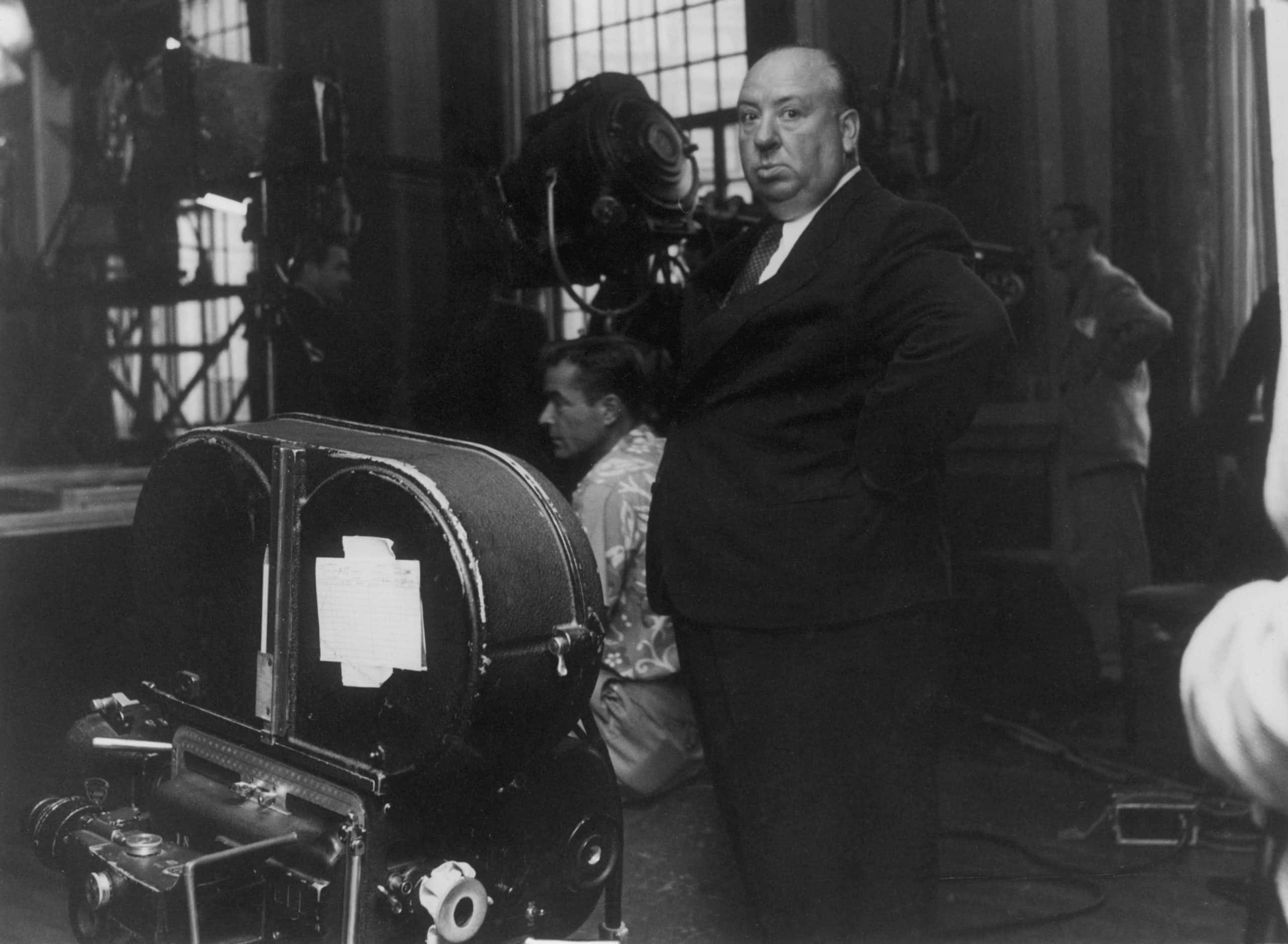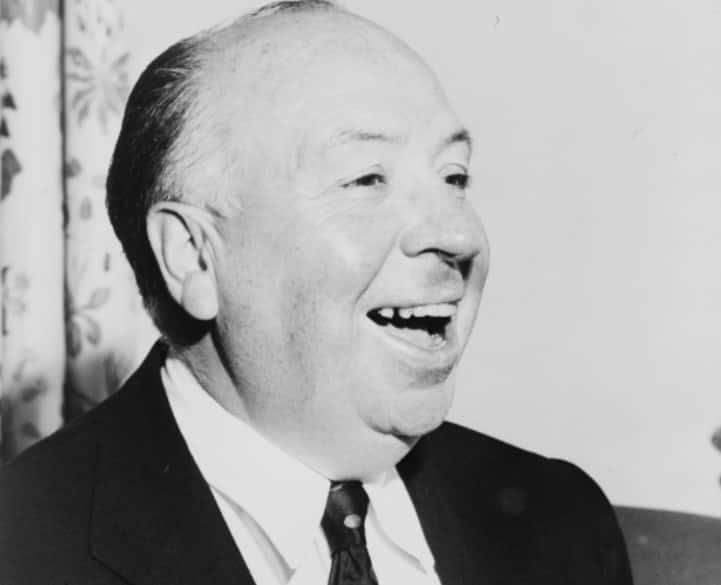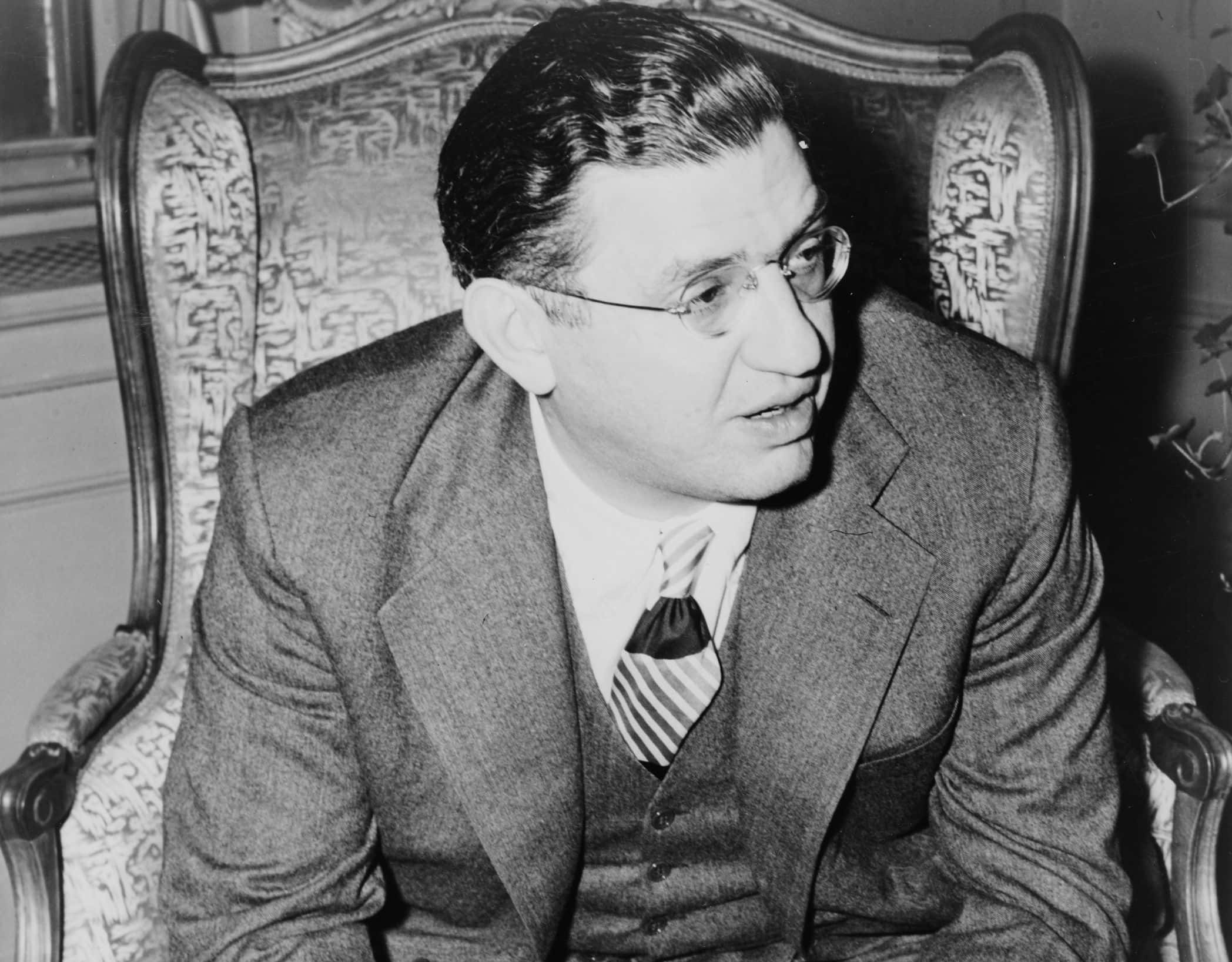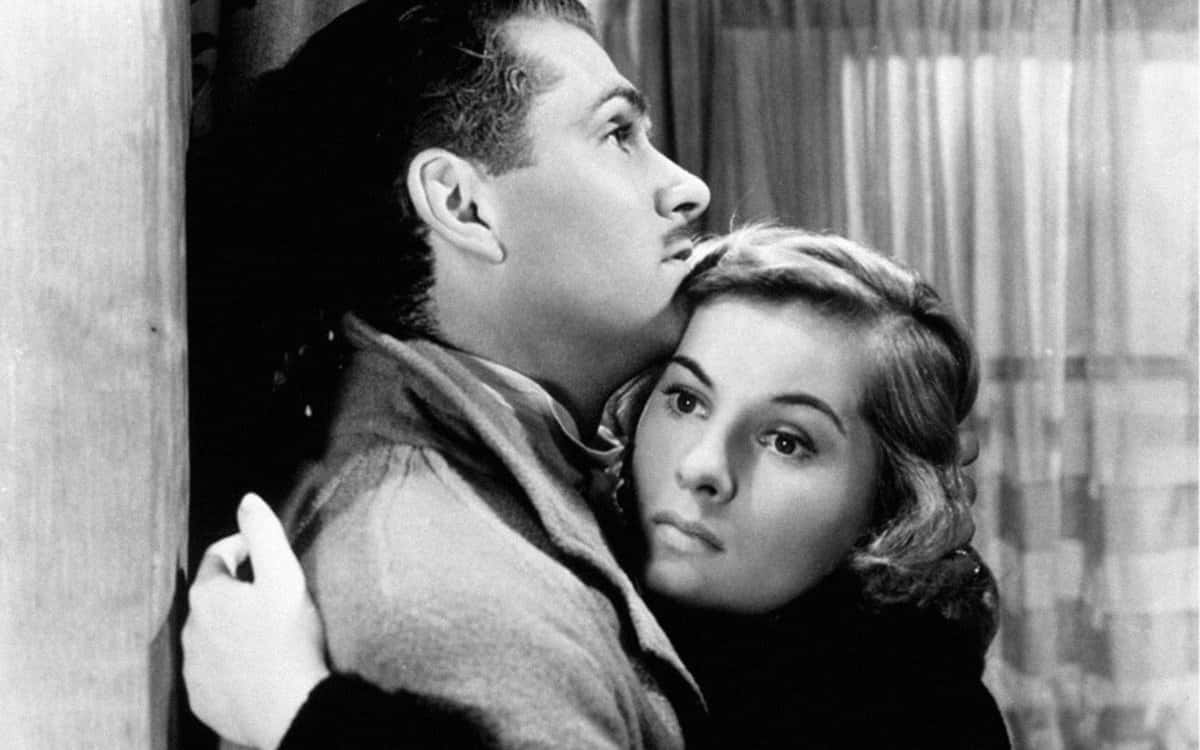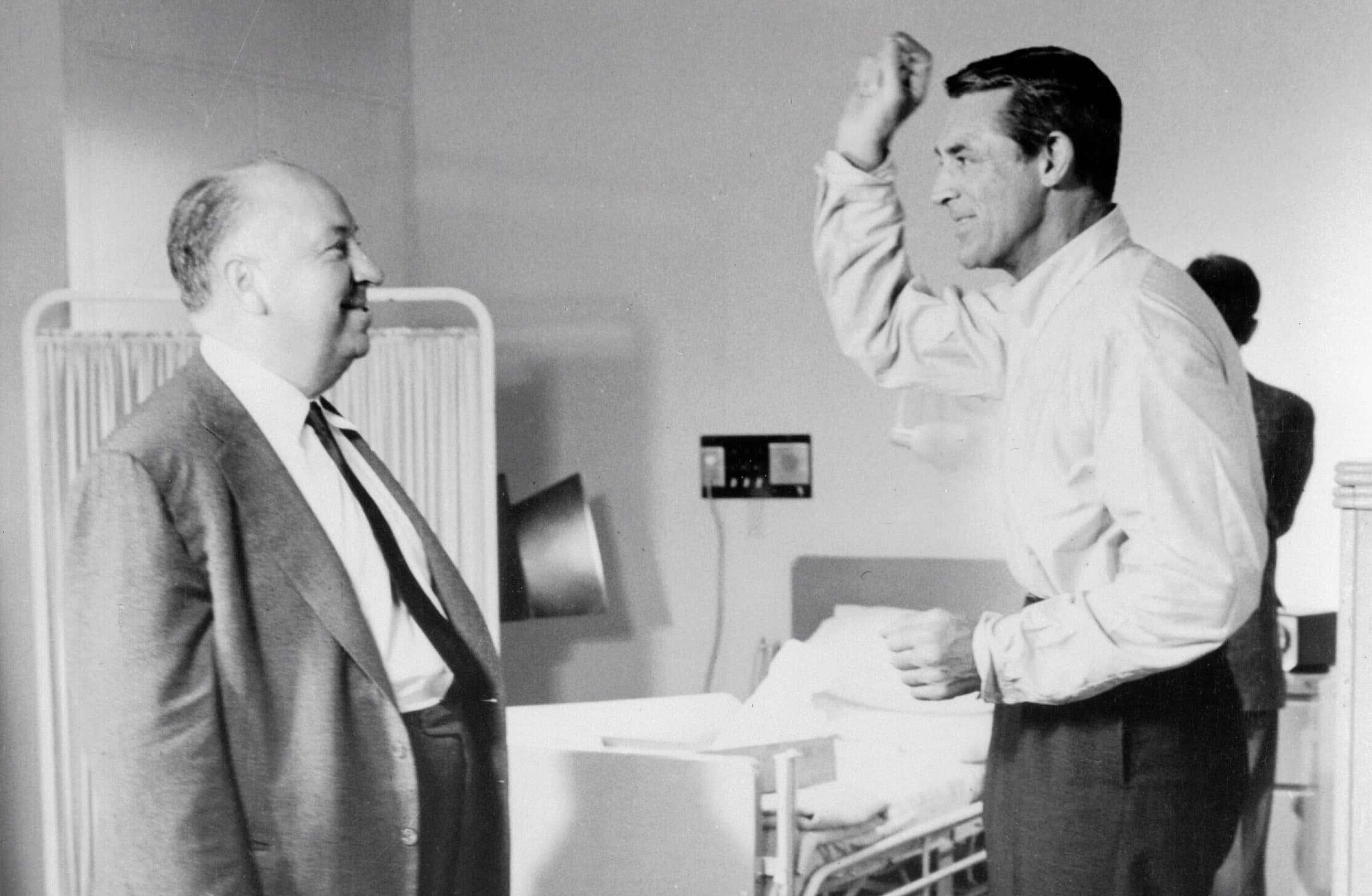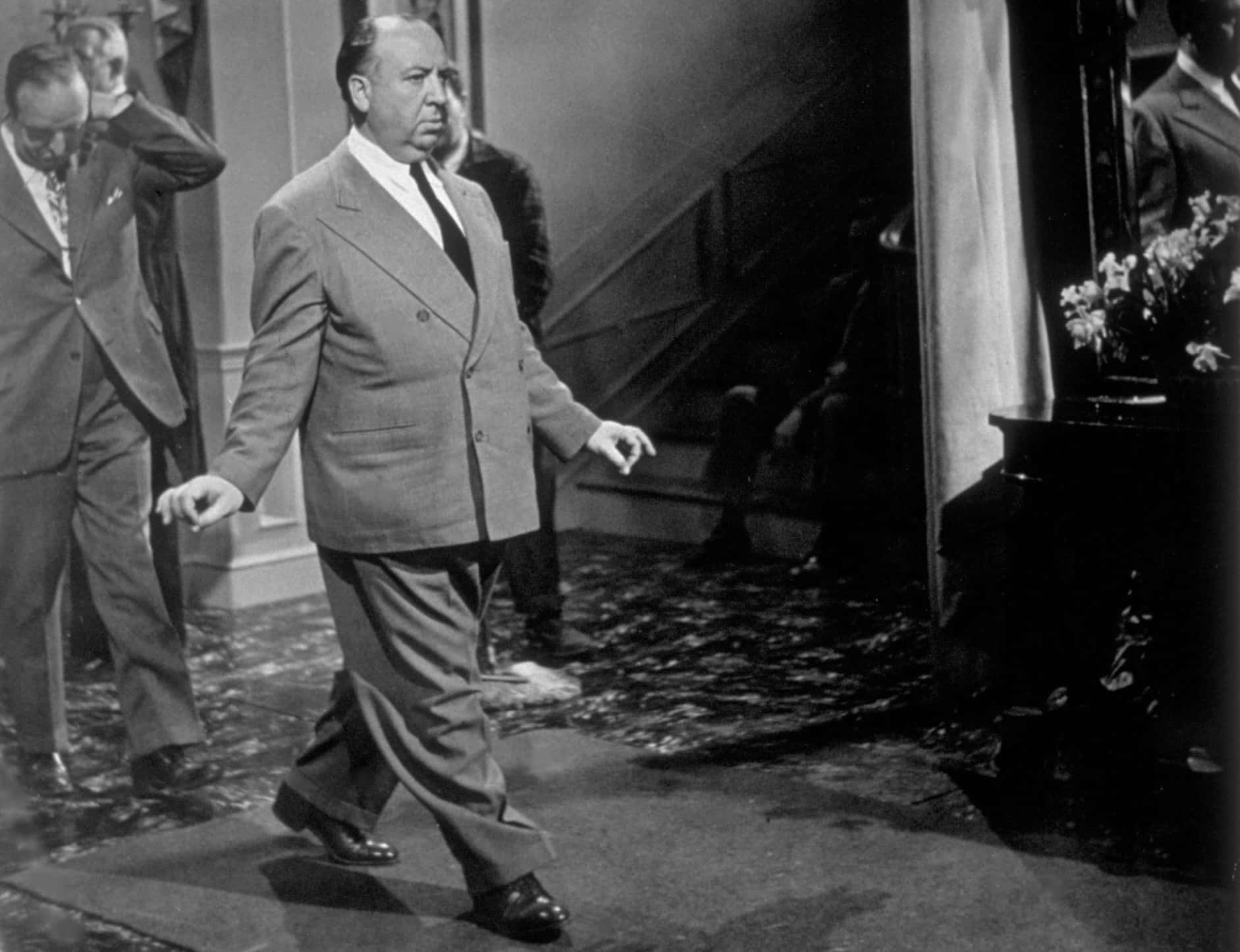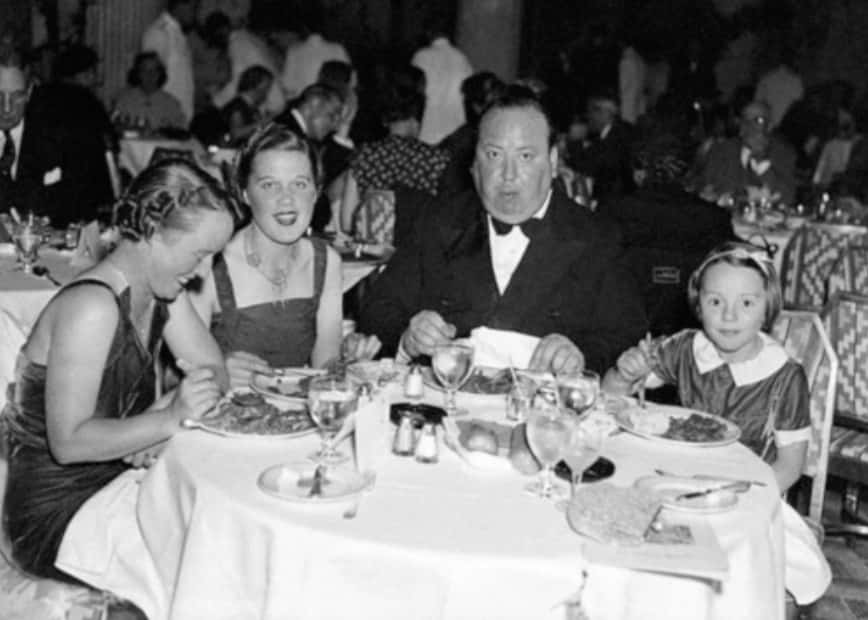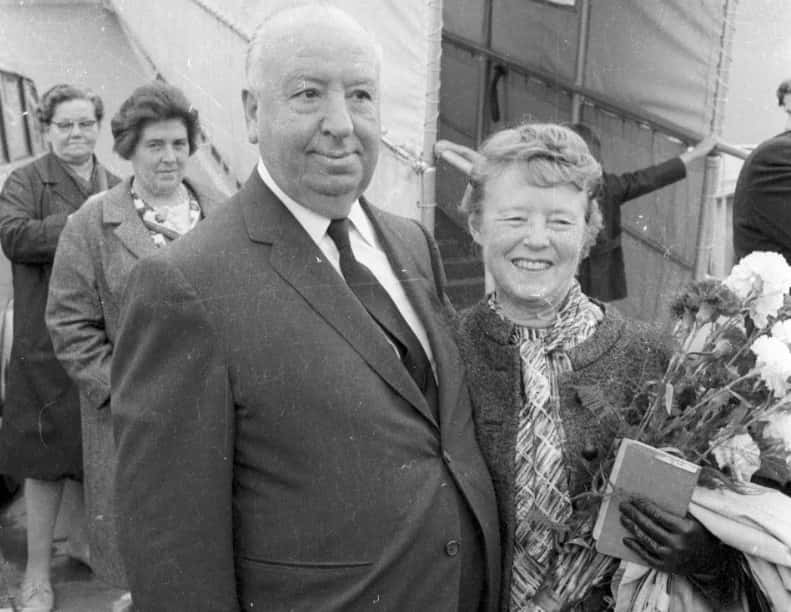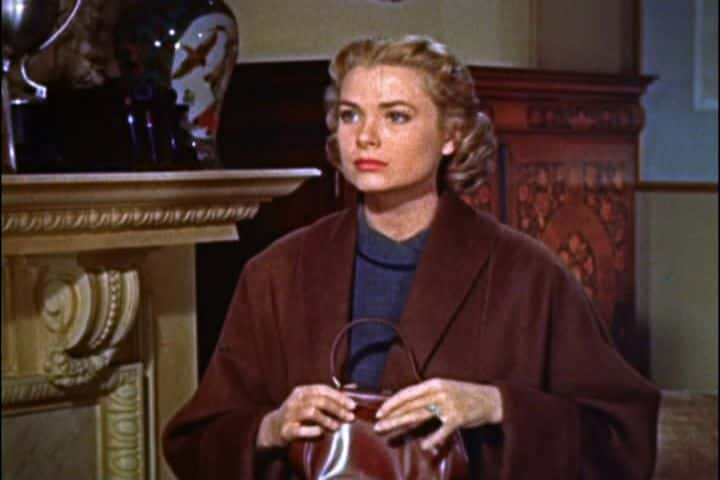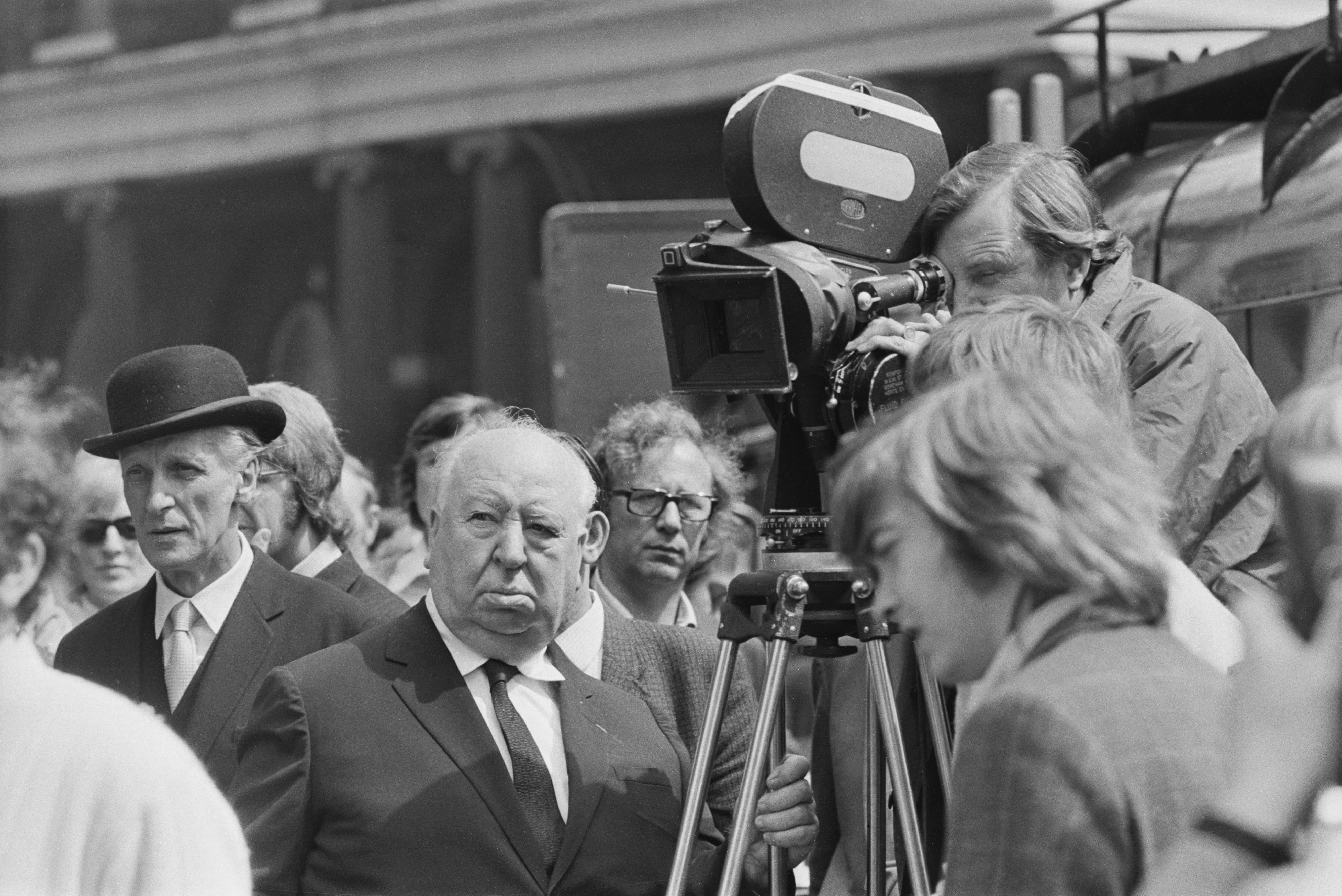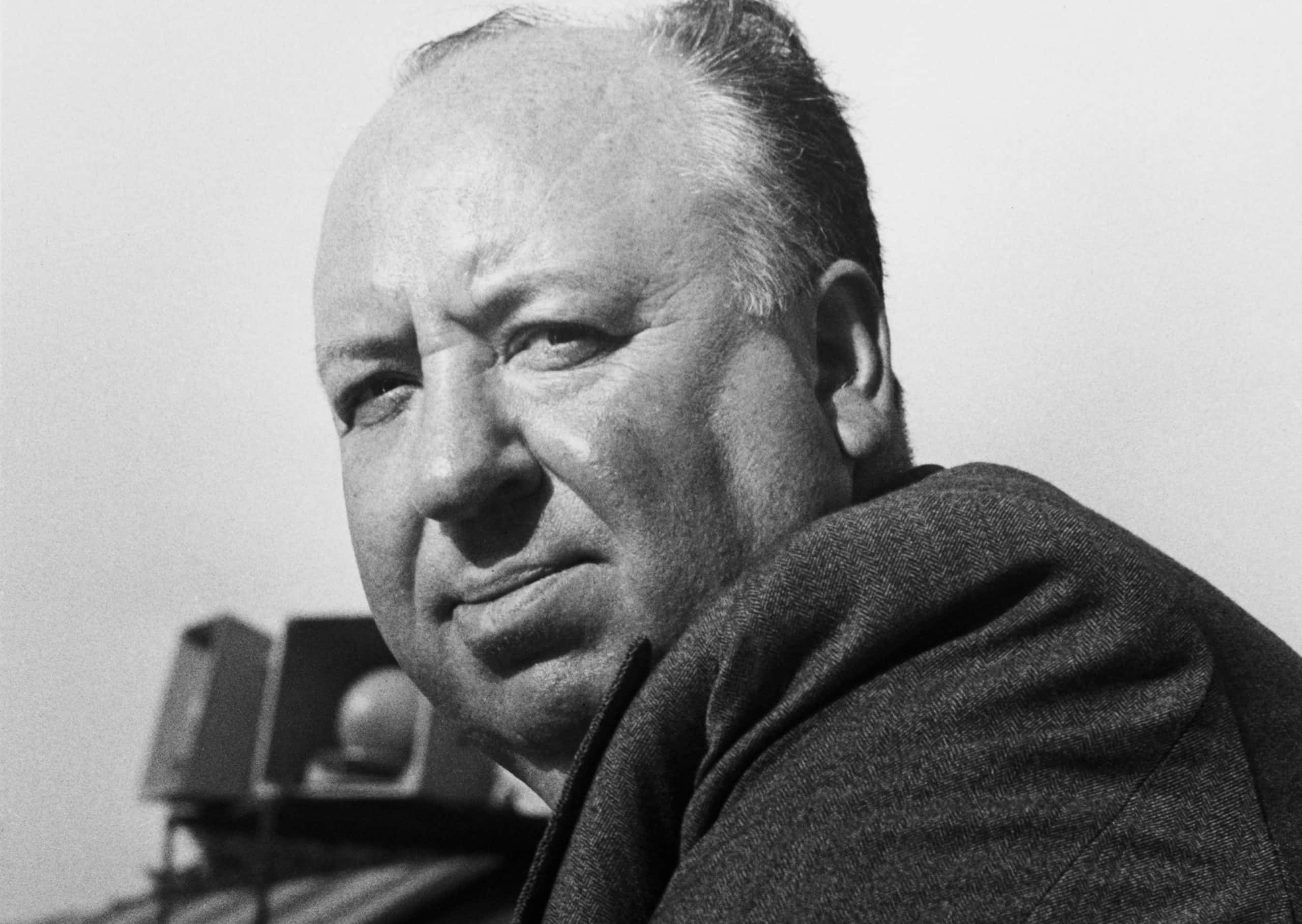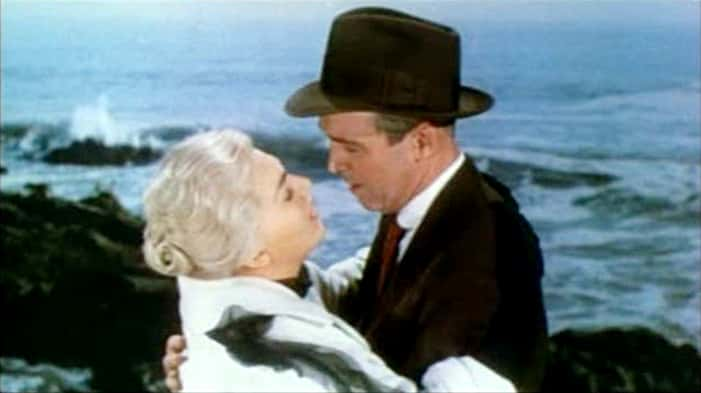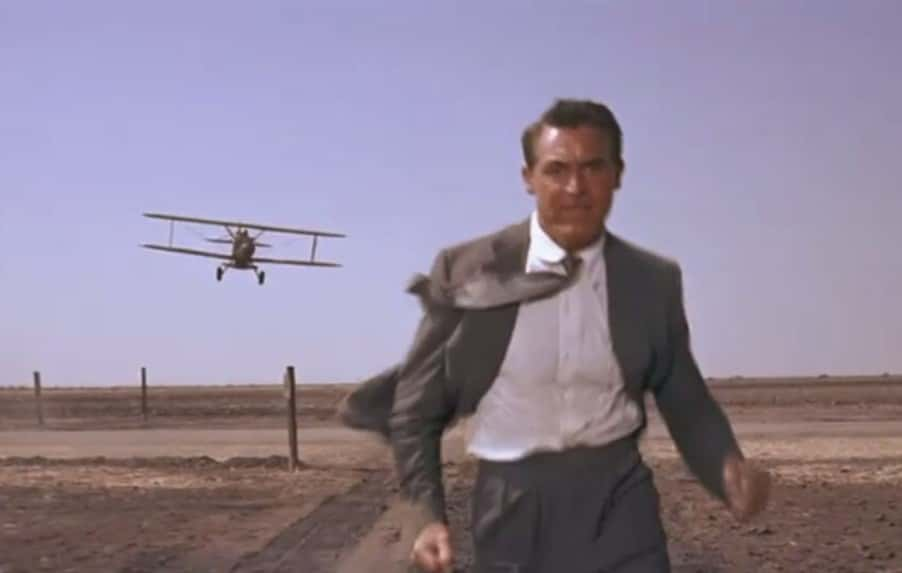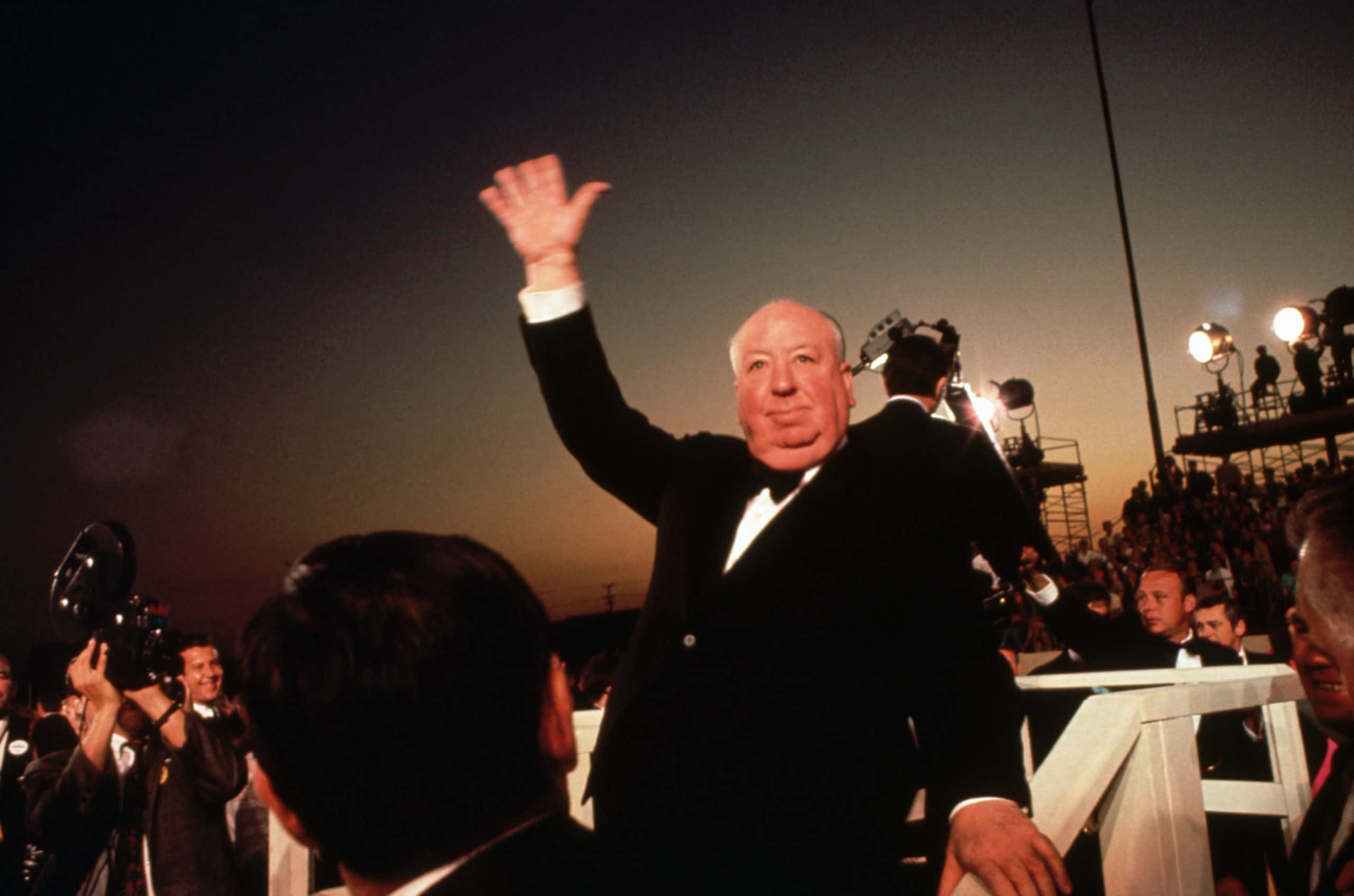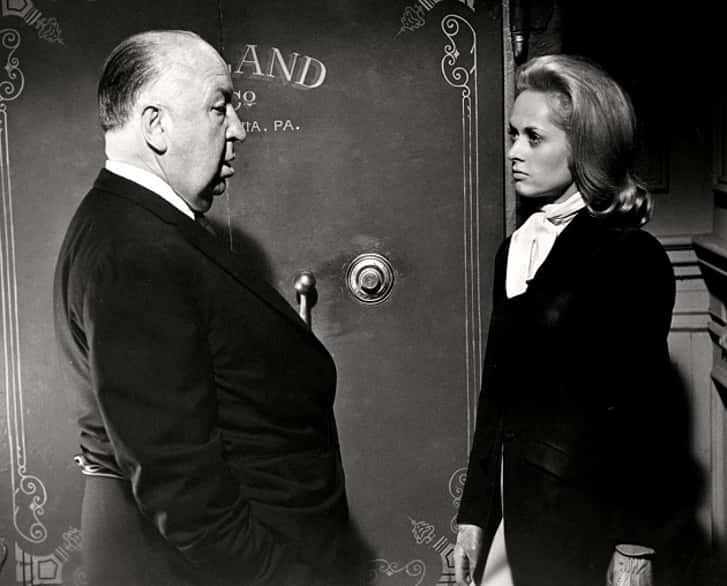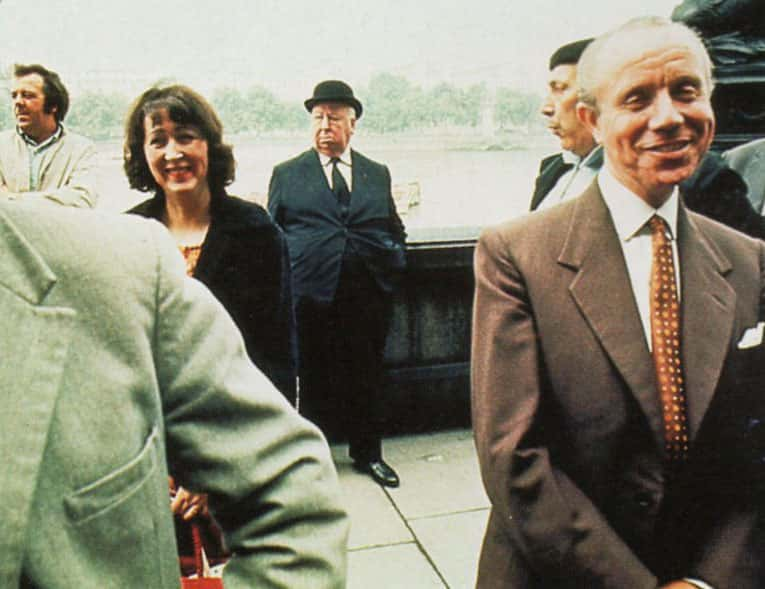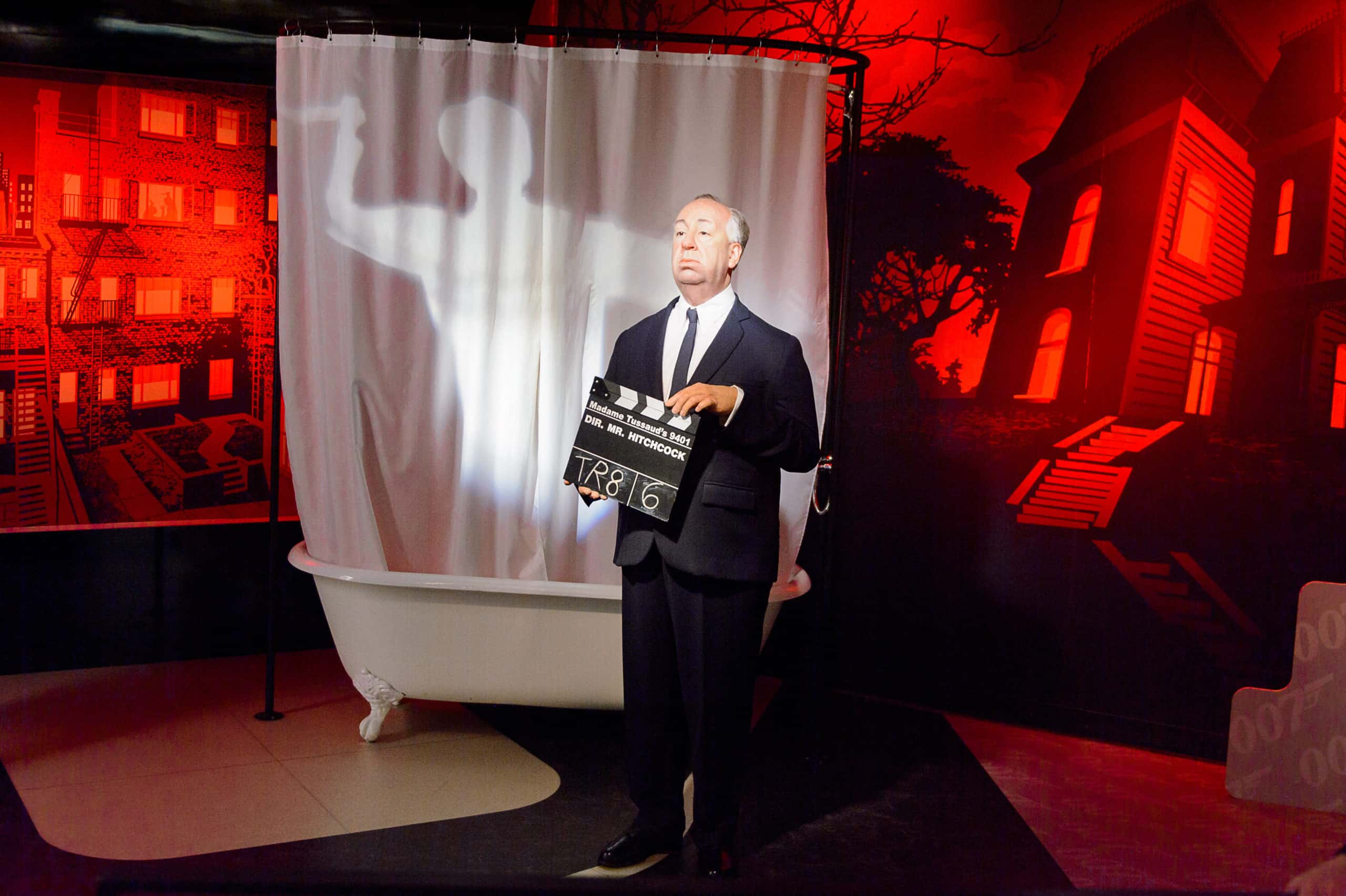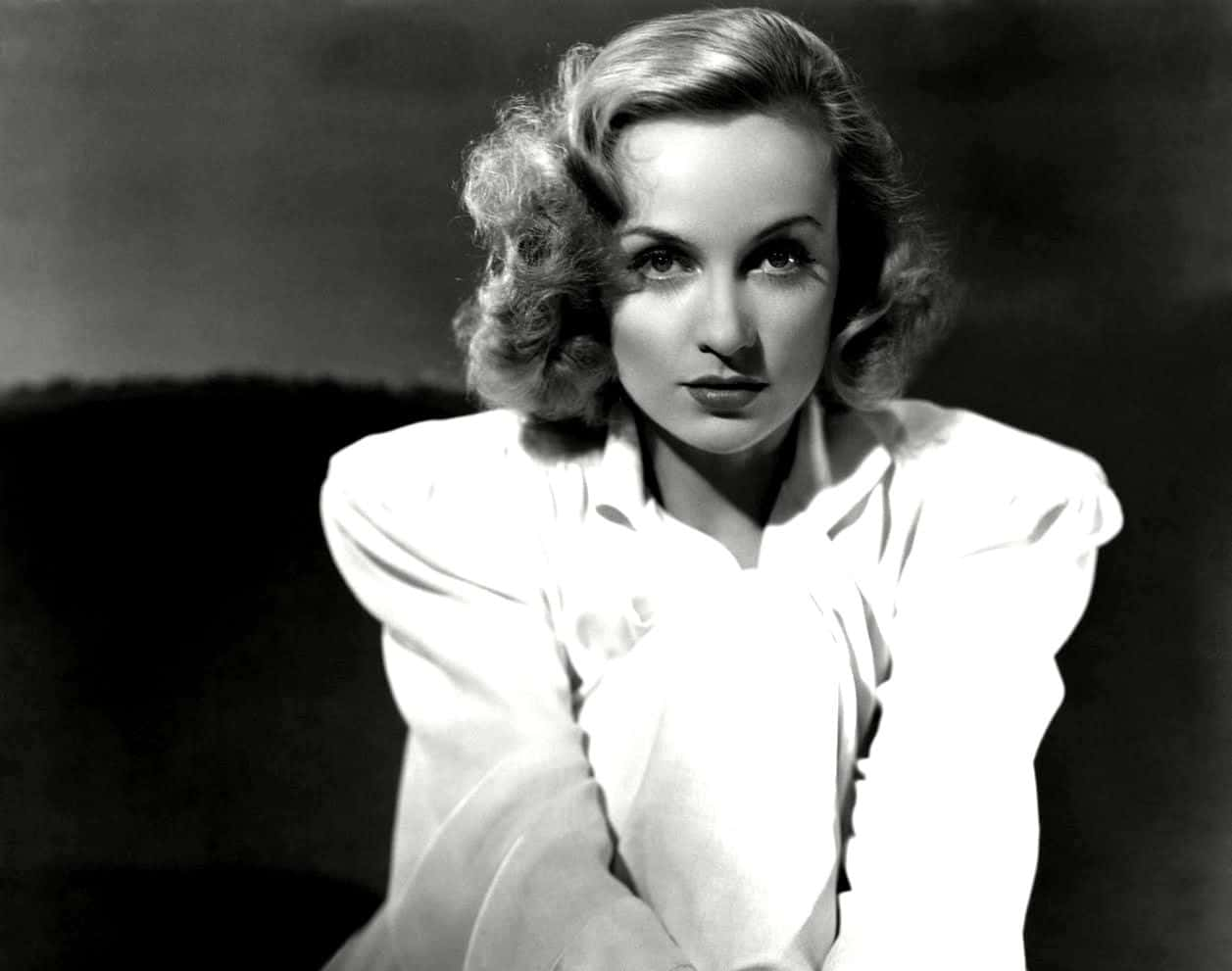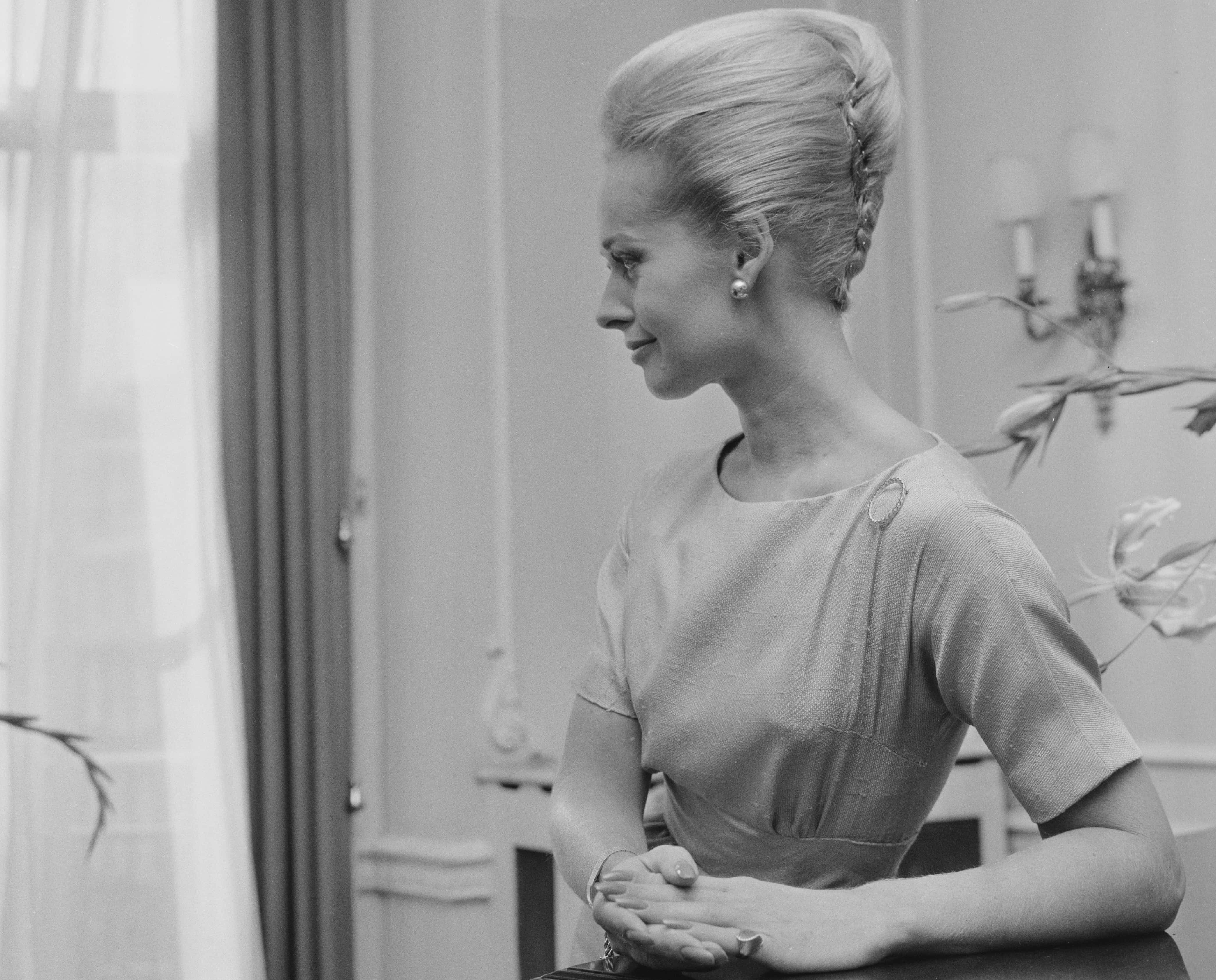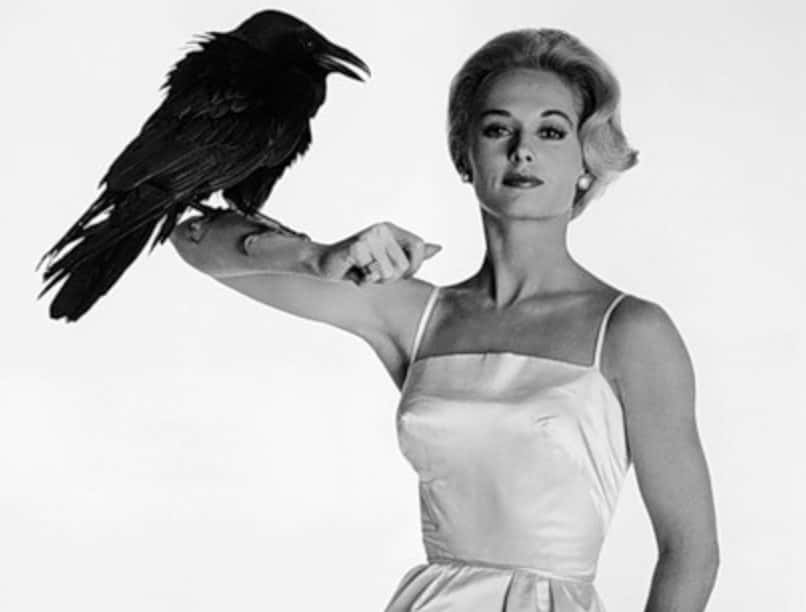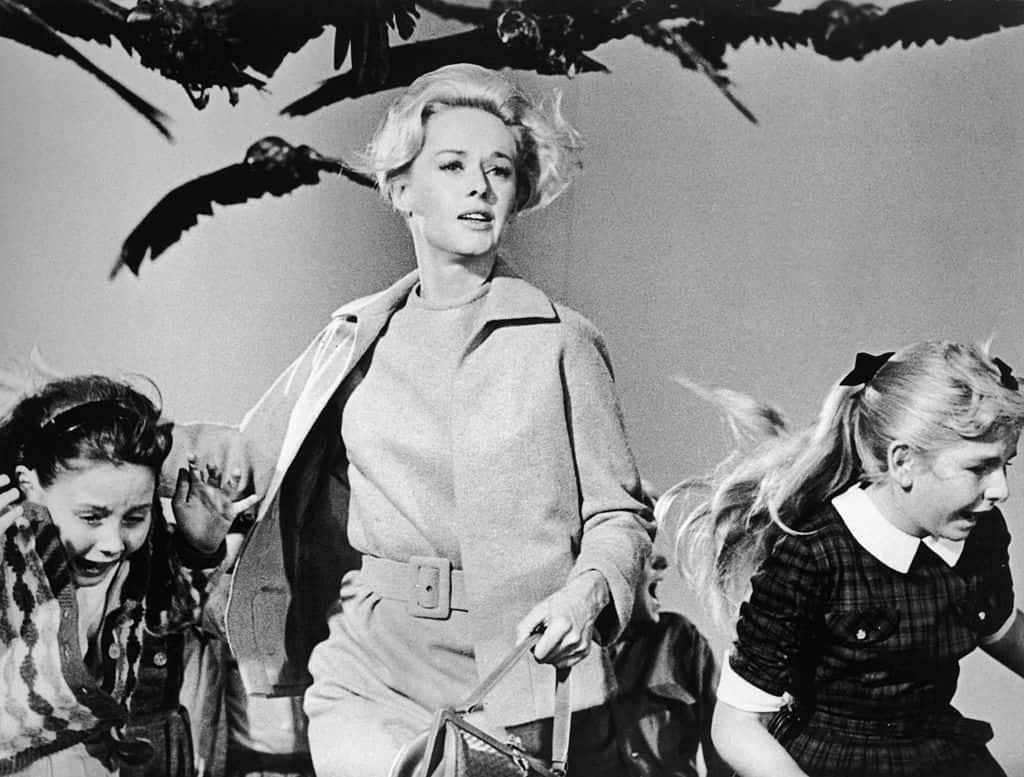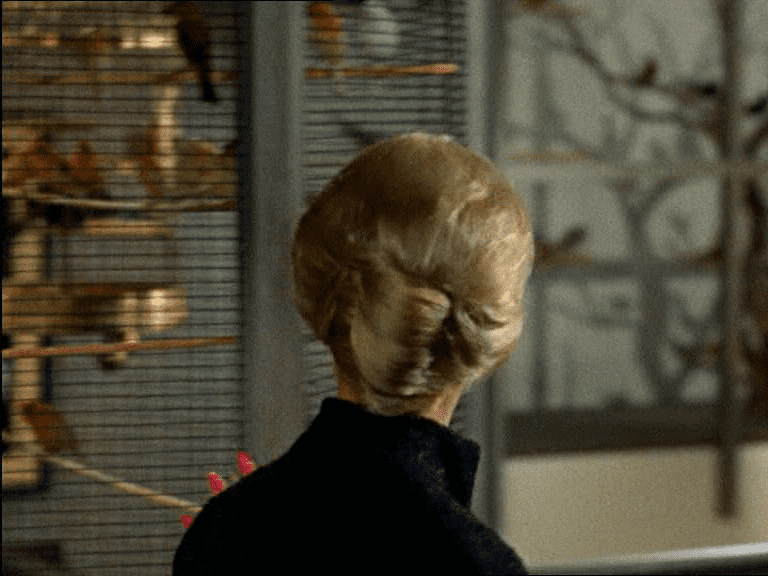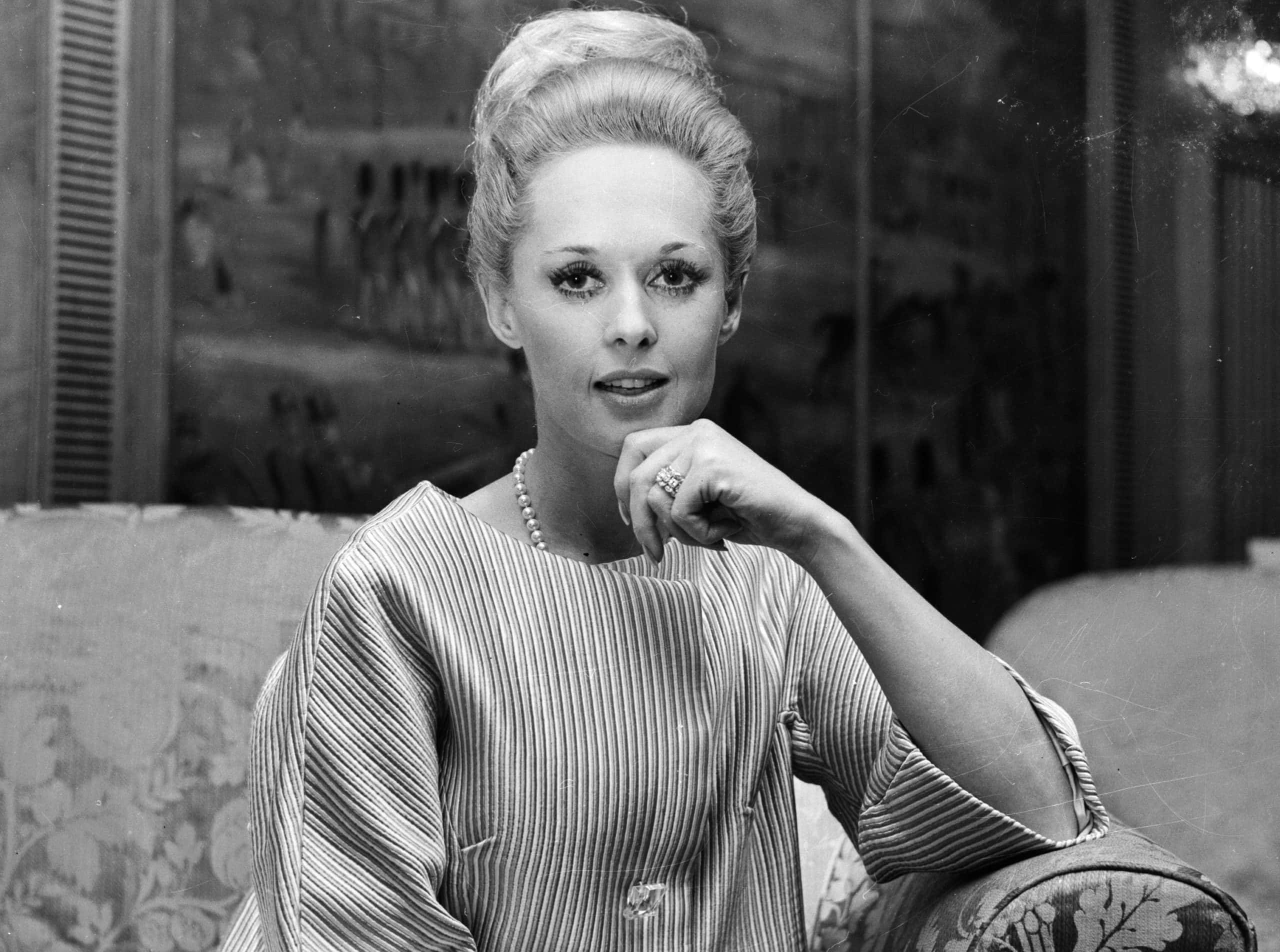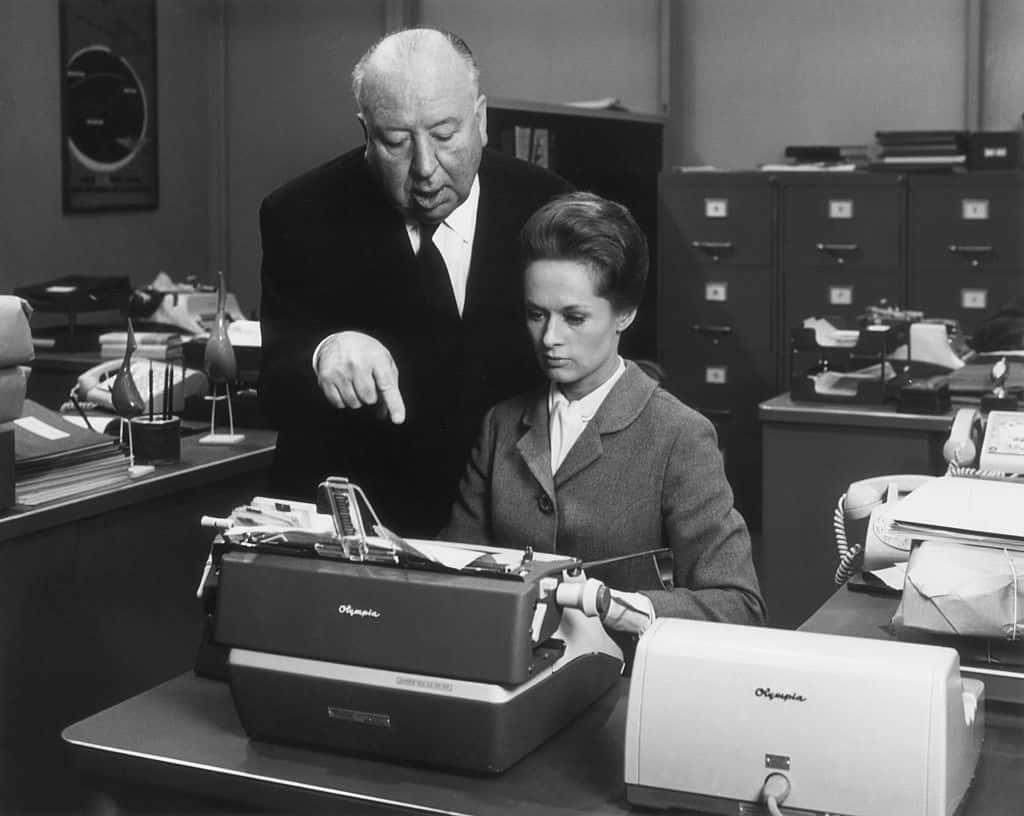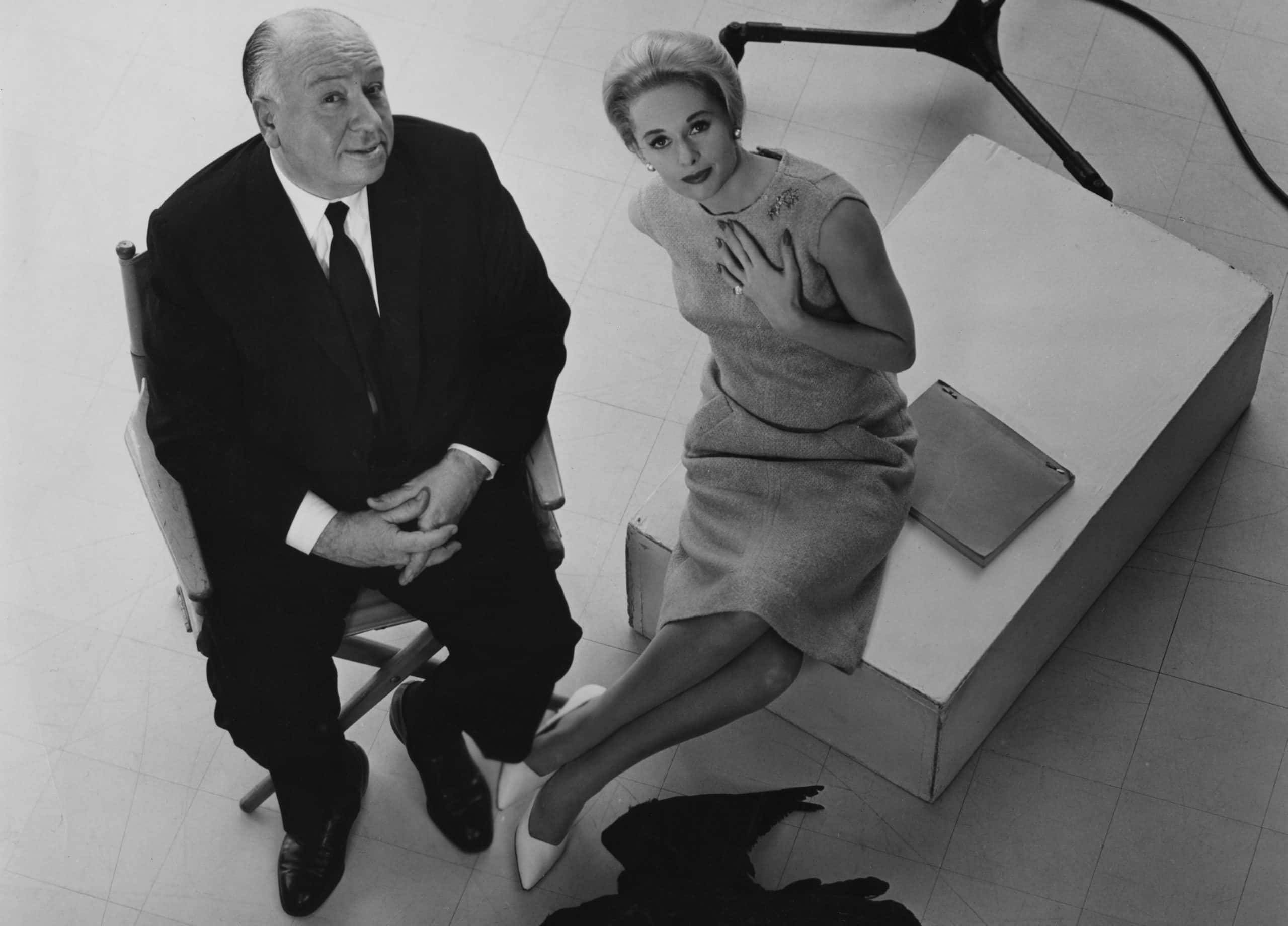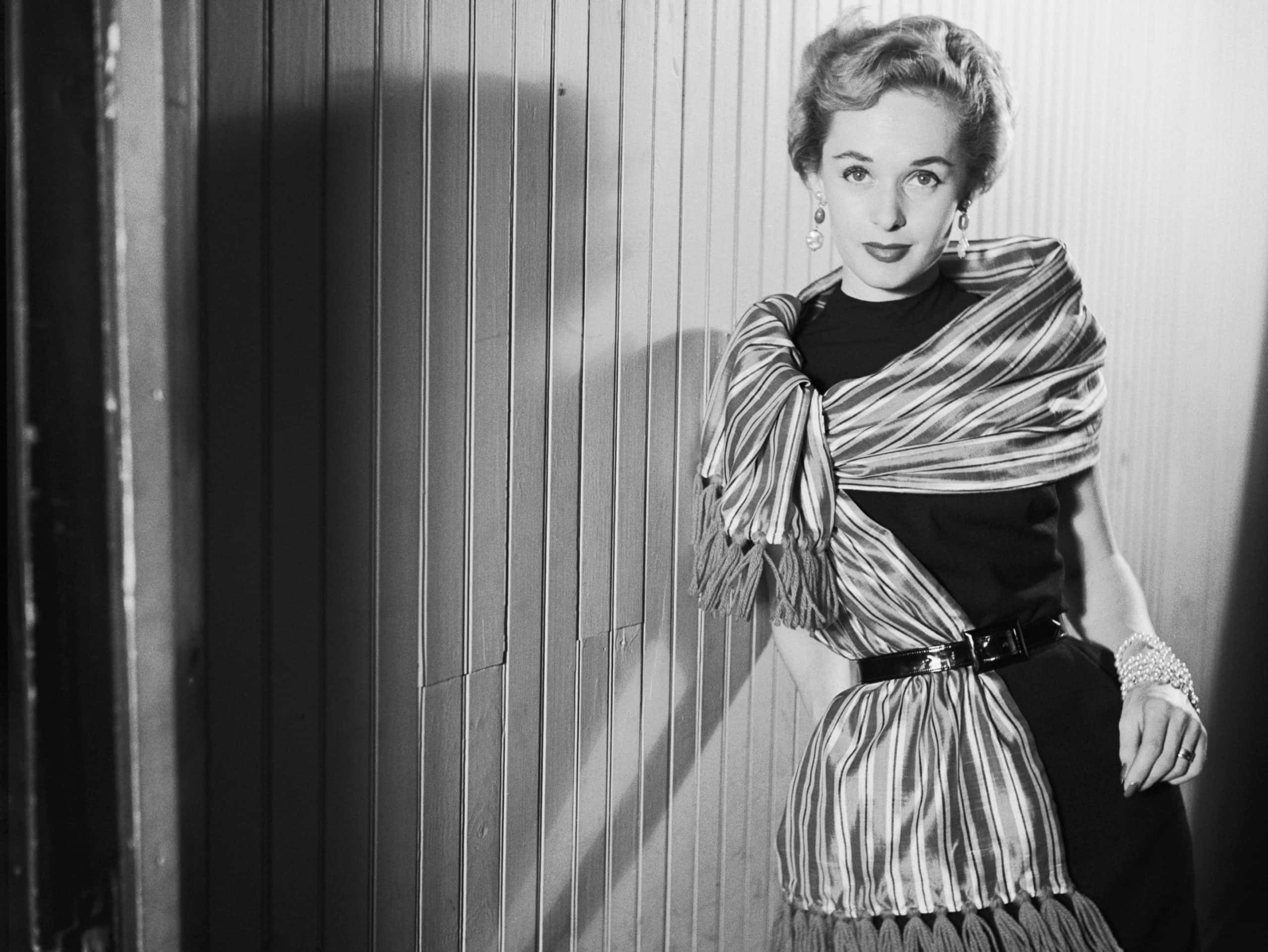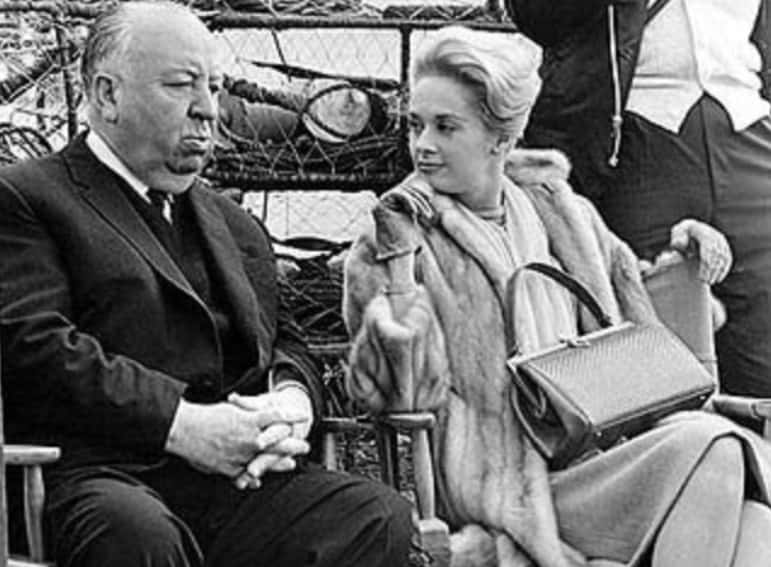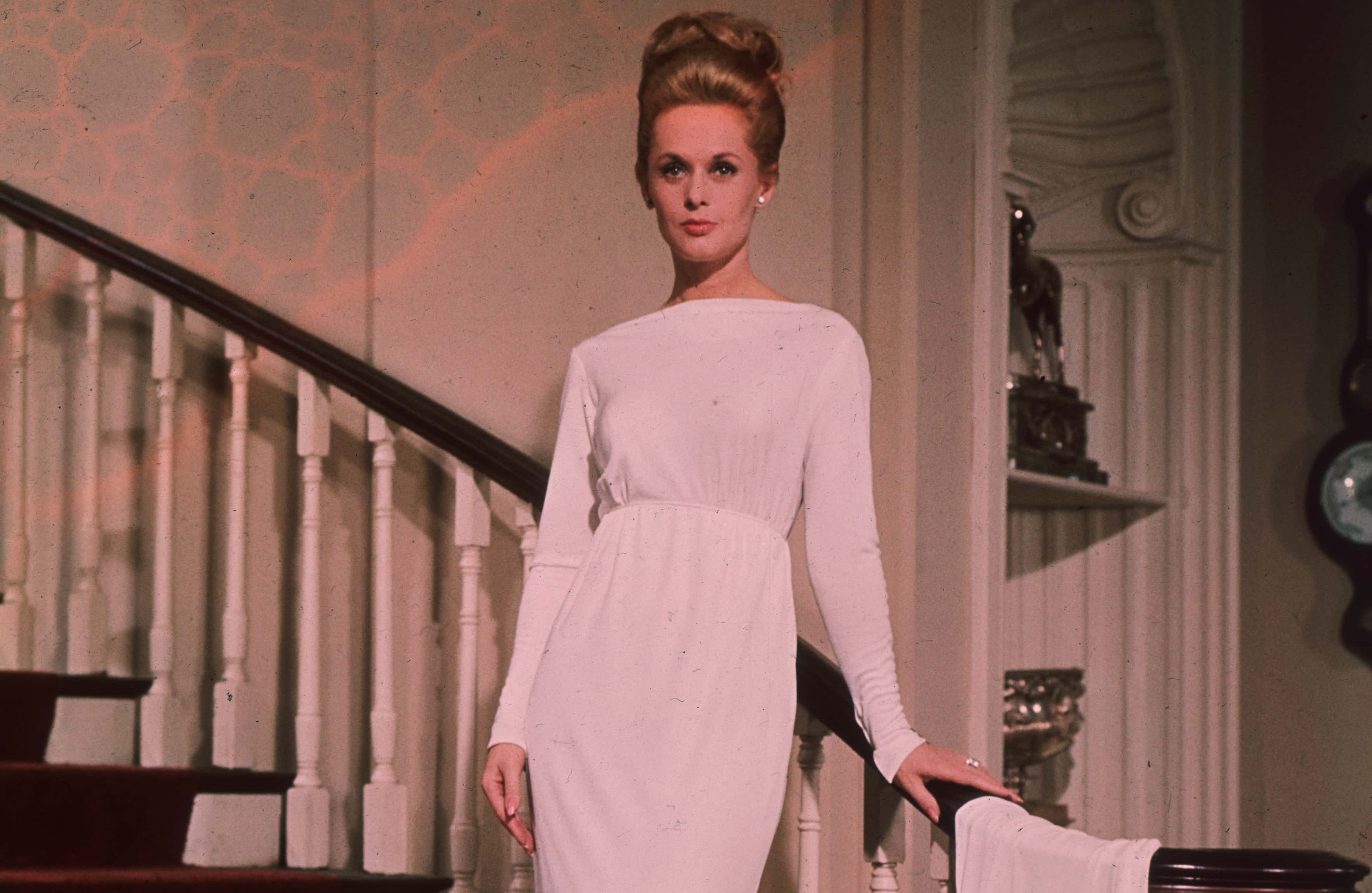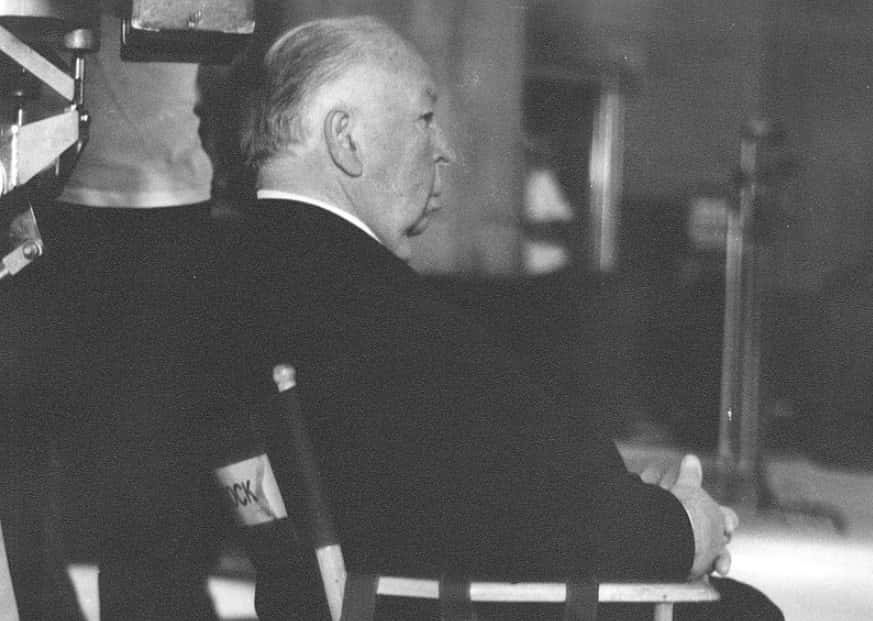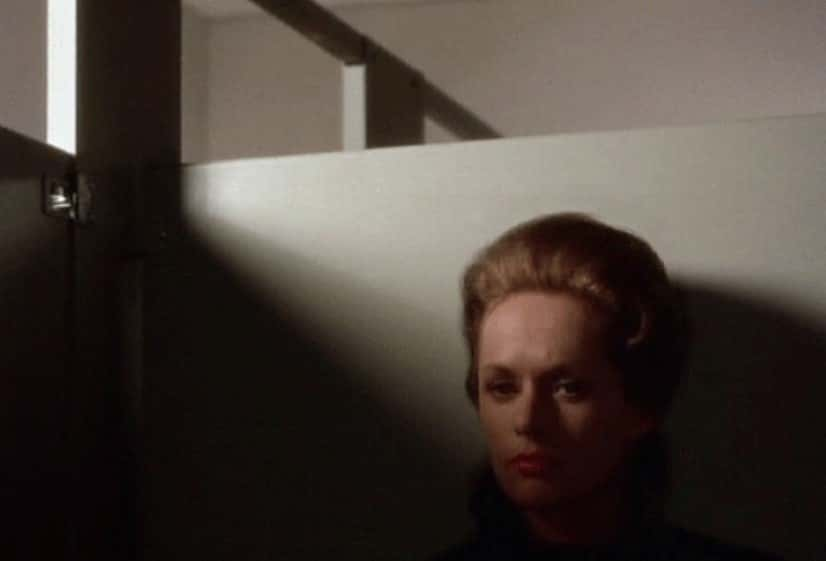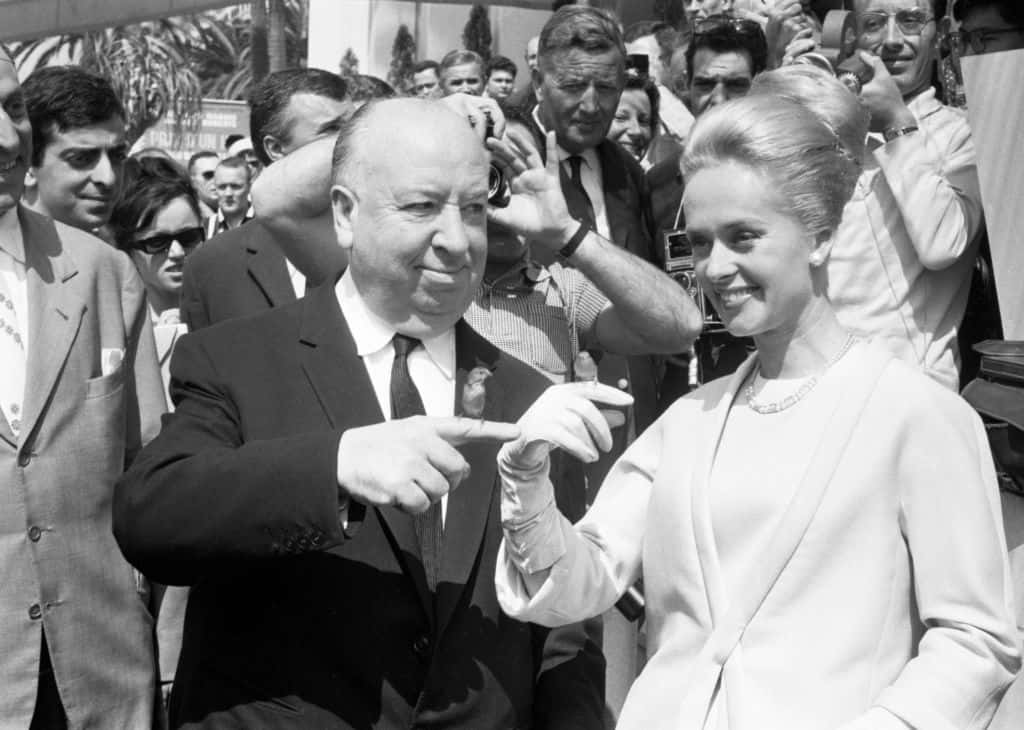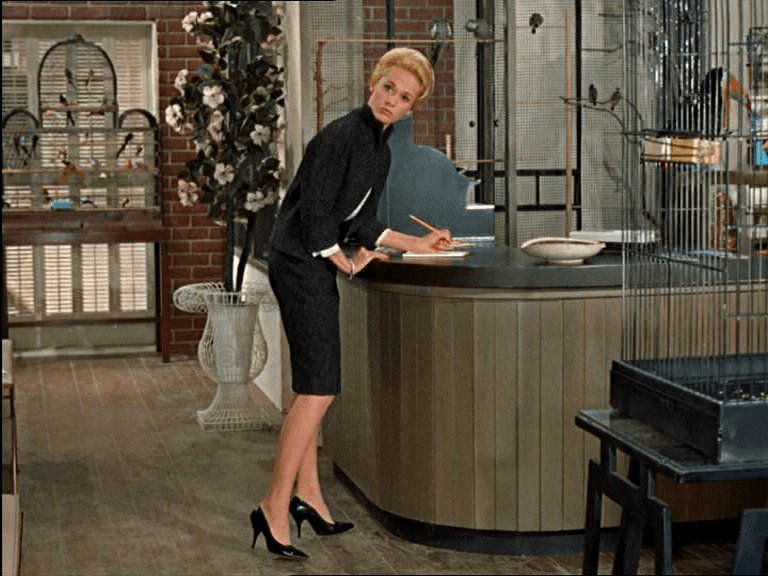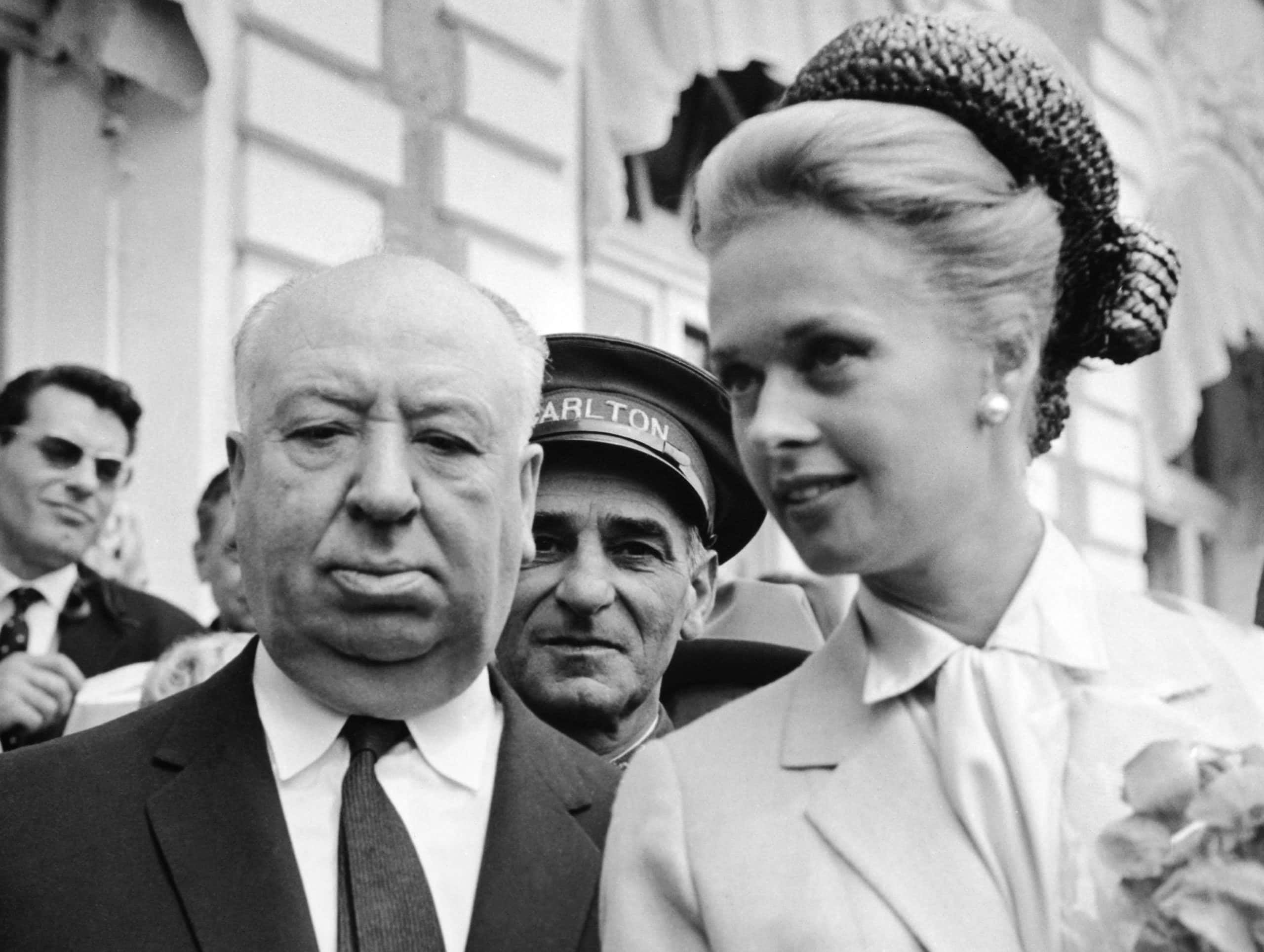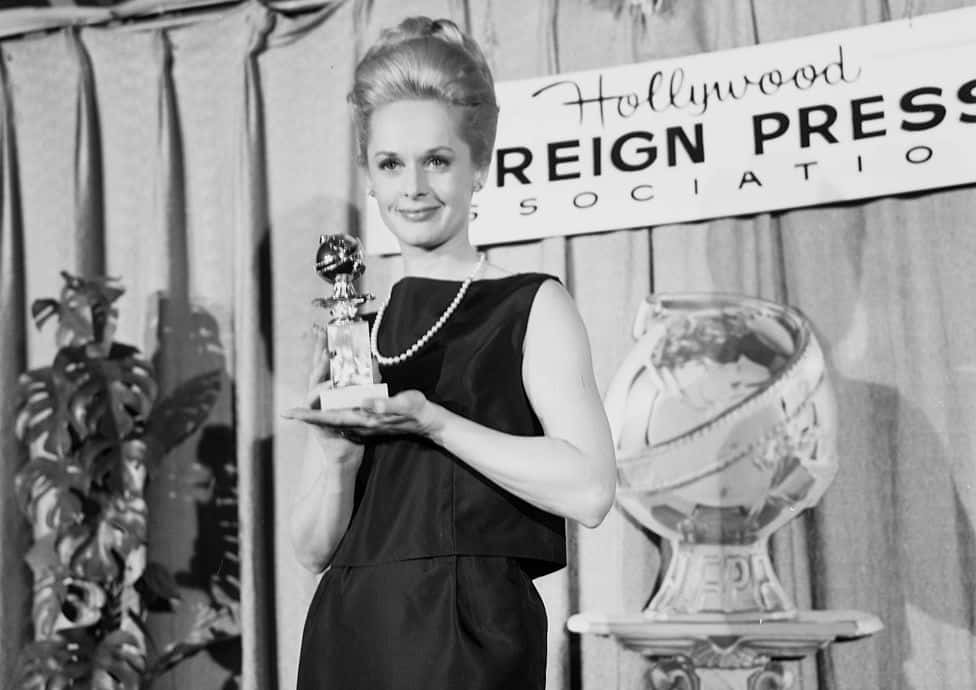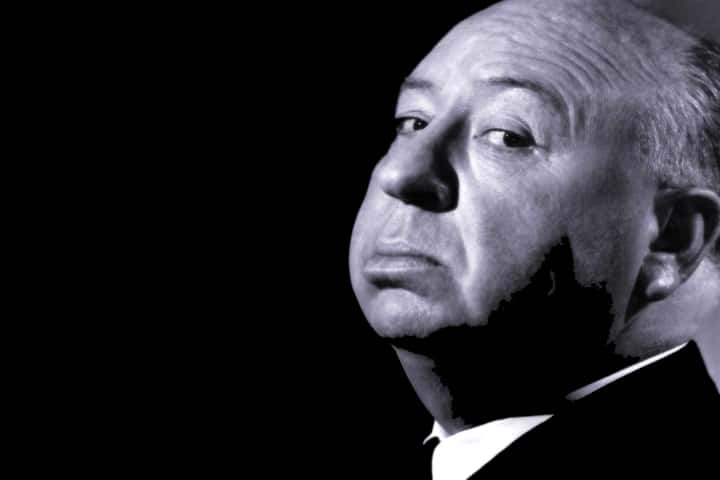Alfred Hitchcock's chilling movies completely changed the face of Hollywood, yet when people met him, they were often surprised. The rotund, polite, silly prankster was nothing like the dark genius they pictured—but Hitchcock was simply good at hiding his depravities. The truth is: He was just as disturbed as his movies would have you believe.
1. He Was Working Class
You might picture Alfred Hitchcock growing up in cold, dark, gothic manor in the English countryside. Well, that's not the case. The Master of Suspense was born in 1899 to a family of...grocers. Not exactly the most thrilling work, but Hitchcock's parents did their best to give him and his two siblings could have a decent life—but they couldn't hide the truth about their situation from their children forever.
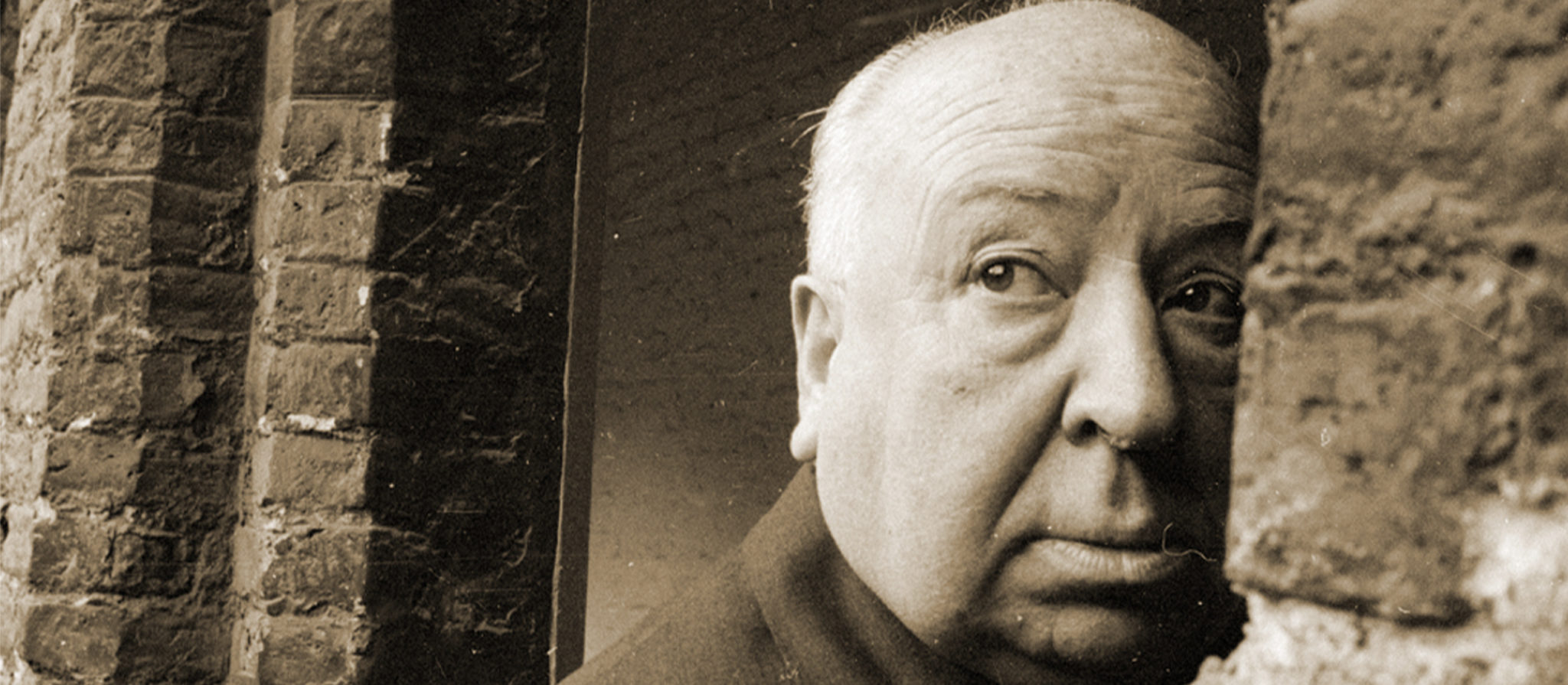
2. He Wanted More
Hitchcock's parents may have been working class, but his uncle had moved himself up in the world. Young Alfred often visited his uncle's huge Victorian home, or vacationed with him at a gorgeous cottage by the seaside. Hitchcock saw how the upper classes lived, but whenever he returned home, he had to face his cold, working-class reality.
He grew obsessed with the idea of "class," and determined to move up in the world. If nothing else, I'd say he did that.
3. He Was A Scared Little Boy
Few people who knew young Alfred Hitchcock would have predicted him growing up to become the Master of Suspense. He was a nervous and well-behaved boy throughout his childhood—but he hid a secret pain. While the other children went off to play together, Hitchcock never joined in. He couldn't even recall ever having a single playmate.
His imagination kept him entertained—and he soon learned that he had a flair for the dark and depraved that would serve him later in life.
4. His Parents Frightened Him
When it came to discipline, Hitchcock's father believed in the belt, plain and simple—but his mother's psychological punishment might have been even worse. Every single night, she forced him to stand at the foot of his bed and recount every single thing he did "wrong" during the day. Then, she would lecture her about each and every little sin he mentioned.
In case you didn't already guess, Hitchcock had an...interesting relationship with his mother—you've seen Psycho, haven't you?
5. He Went To An Infamous School
At the height of his career, Hitchcock seemed to have a preternatural understanding of what made people afraid. He learned it during the worst days of his childhood. When he was 11, his parents sent him to the infamous St. Ignatius College. If he thought his parents were bad, he was in for a rude awakening. The priests who taught there had a fearsome reputation.
Hitchcock quickly realized they were even worse than people said.
6. Priests Taught Him True Fear
Everyone knew that the Jesuit priests of St. Ignatius deployed harsh discipline. When he arrived at the school, Hitchcock learned the truth of that reputation firsthand. The priests beat him and the other students when they misbehaved. Even worse, they saved all the beatings until the end of the day, so any misbehaving boys had to sit through hours of class, dreading the pain that was coming.
Those priests taught Alfred Hitchcock what fear really was—and soon, he'd teach the world.
7. He Wanted To Be An Engineer
Were it not for a terrible tragedy, Alfred Hitchcock might never have made a single film. As a teenager, he wanted to be an engineer. He began taking night courses at the London County Council School of Engineering and Navigation. Had nothing changed, he likely would have completed his studies and gone on to a successful engineering career. But fate, it would seem, had other plans.
8. He Lost His Father
Less than two years after he began going to engineering school, Hitchcock received news that threw his entire life upside down. His father had been ill for some time, but he suddenly took a turn for the worse and passed at age 52. That is the moment everything changed for Alfred Hitchcock.
9. He Helped His Mother
Both of Hitchcock's elder siblings had left home by the time their father passed, and they showed little interest in supporting their mother. That role fell to Alfred, the youngest. He took a job as a technical clerk, earning 15 shillings a week, to help her make ends meet. It must have felt like his dreams were in jeopardy—until one day, when a story in the newspaper caught Hitchcock's eye...
10. He Had To Shoot His Shot
When Hitchcock was growing up, movies were mostly an American game. That changed in 1919, when Paramount Pictures opened a studio in London. Hitchcock loved the cinema, so he decided to shoot his shot. He heard that Paramount planned to shoot a film called The Sorrows of Satan in London, so on a whim, he produced his own title cards for the movie and sent them to the studio.
I assume he figured, worst-case scenario, it couldn't hurt. Well, it went better than he could have ever hoped for.
11. He Learned Fast
Even though they never asked for it, Paramount loved Hitchcock's work. And wouldn't you know it, they were hiring! They gave Hitchcock a job, and suddenly, he was right in the thick of a movie production studio. He worked on a little bit of everything, from writing, to art direction, to production design. But an education wasn't all Hitchcock got—he found something even more important.
12. He Fell In Love
While working on the film Woman to Woman, Hitchcock met the studio's new editor and script girl: Alma Reville. Both of them recognized genius in the other, and they soon became inseparable. After a whirlwind romance, they married in 1926. They remained together for the rest of their lives—but don't go thinking this was some hokey love story.
Alfred Hitchcock didn't make romance movies. He made horror stories.
13. He Started A Family
Two years after their wedding, Reville became pregnant. To support their young family, Hitchcock purchased "Winter's Grace," an old Tudor farmhouse in Surrey. Their daughter was born on July 7, 1928, and it seemed as if Alfred Hitchcock had built a blissful little life for himself. But the English countryside wasn't big enough for a genius like Alfred Hitchcock.
The allure of Hollywood would drag him away before long—and send him down a dark path.
14. He Adored His Wife
Despite the upsetting revelations that have come out about Alfred Hitchcock, his relationship with his wife seems surprisingly loving and respectful. When he accepted the AFI Life Achievement Award, he thanked four people: An editor, a scriptwriter, the mother of his daughter, and a wonderful cook—and each of their names were Alma Reville.
Alfred Hitchcock appears to have been a big softie at heart—but he didn't treat all women as well as his wife. His star actresses would learn that before long...
15. He Went Dark
Alfred Hitchcock worked his way up the ladder, eventually getting to direct his own movies. He slowly made a name for himself, but his films didn't yet have the distinctive Hitchcockian flair. Yet. The first movie to really put his name on the map, The Lodger: A Story of the London Fog (1927), saw him finally delve into the darker side of his psyche.
The movie, about a psychotic serial killer who only killed on Tuesdays, was a huge hit. Hitchcock was onto something...and he was just getting started.
16. He Was A Little Stinker
Though he may have seemed somewhat shy and reserved, Alfred Hitchcock was a little stinker at heart. He loved pranking his cast and crew—and he often took the joke too far. Sometimes, it might be something as bizarre as holding a feast where all the food was dyed blue. Another time, he had an enormous horse sent to an actor's dressing room.
If that was the worst of them, he might seem like nothing but a playful puck—but his other pranks were far more sadistic.
17. He Pulled A Psychotic Prank
The most infamous of Hitchcock's pranks involved a bet with a camera operator. He bet the man that he couldn't spend an entire night chained to his camera. The director offered up a week's salary if he could do it. Confident as anything, the cameraman chained himself and prepared for the easiest week's pay he'd ever get.
Impressed, Hitchcock gave the cameraman a glass of brandy and went home. It didn't take long for the cameraman to realize something was very, very wrong.
18. He Spiked The Drink
That was no ordinary glass of brandy. Hitchcock had spiked the drink...with laxatives. There's no word on what state the crew found that poor cameraman in the next morning, but I can't imagine it was pretty. However, Hitchcock couldn't stay in London, pranking clueless crewmembers forever. He was getting too big for his hometown—and the bright lights of Tinsel Town were calling.
19. He Went Hollywood
Everyone in Hollywood wanted their hands on Alfred Hitchcock—and infamous producer David O. Selznick got there first. He signed the director to a seven-year deal, and in 1939, with nearly 30 movies under his belt already, Hitchcock and his family moved to Hollywood. None of them would ever be the same again.
20. He Got Off To A Good Start
Alfred Hitchcock got off to a roaring start in America. In 1940, he released his first American picture: Rebecca, starring Joan Fontaine and Laurence Olivier. The film was a critical and box office success, culminating in a Best Picture win at the Oscars. It felt like nothing could go wrong for Hitchcock—but then, just a few short years after he left England, he received devastating news from back home.
21. He Suffered Two Losses
In 1942, Alfred Hitchcock got word that his mother Emma passed. Then, just a few short months after that, his older brother William succumbed to an overdose. Two members of his family, gone in the blink of an eye. And yet Hitchcock barely even had time to mourn. His hectic Hollywood schedule kept him working around the clock. Grief or no, he released 12 films in his first 10 years in America.
But while it didn't stop him from working, perhaps the grief manifested itself in different ways...
22. He Could Eat...And Eat...And Eat
Alfred Hitchcock was never a svelte fellow, but America provided him the chance to really lean into the gluttony. At his unhealthiest, this was a typical dinner at the Hitchcock household: A full roast chicken, boiled ham, potatoes, bread, veggies, relishes, a salad, and dessert—all washed down with a full bottle of vino and a couple brandies, of course.
If this kept on, Hitchcock would soon join his family—so he decided to do something. The only problem was, the solution was nearly as bad as the problem...
23. He Started An Insane Diet
Hitchcock's eating problem reached its peak after his mother's passing. However, after William's passing, Hitchcock finally realized he had to change something. He gave up the massive dinners. Unfortunately, his new diet was maybe even worse than the old one. He stopped eating during the day, with nothing but black coffee to tide him over. Then at dinner? A steak and a simple salad. And that's it for the day.
Hitchcock figured this was the solution to his health problems. Surprise surprise, he was wrong.
24. His Health Started To Suffer
Turns out, completely going from one extreme diet to another overnight isn't exactly sustainable. Hitchcock's weight began fluctuating wildly. His quest for a healthy lifestyle was a failure—to add insult to injury, even after losing weight, he still couldn't get life insurance. But while physically, Alfred Hitchcock was having trouble, his career couldn't have been going any better.
25. He Hit The Next Level
By 1954, Hitchcock had already been working in film for 30 years, yet he'd barely even hit his stride yet. Beginning in 1954, he made three hit movies with starlet Grace Kelly: Dial M for Murder (1954), Rear Window (1954), and To Catch a Thief (1955). Then, he began hosting his own TV series: Alfred Hitchcock Presents. He was already a respected director, but this was something different.
Now, Alfred Hitchcock was a celebrity. And it started to change him.
26. He Found His First Muse
Alfred Hitchcock found the leading lady he'd always dreamed of in Grace Kelly. Sophisticated, stunning blonde stars became a staple of his movies—but that doesn't mean he respected these women. Take Vera Miles, whom Hitchcock wanted to star in his 1958 film Vertigo. He was ready to cast her when he heard horrifying news: She was pregnant. His reaction was...harsh.
27. He Hated Pregnant Women
Hitchcock thought Vera Miles might be his new Grace Kelly—until she went and did something as awful as get pregnant: He later said, "I was offering her a big part, the chance to become a beautiful sophisticated blonde, a real actress. We'd have spent a heap of dollars on it, and she has the bad taste to get pregnant. I hate pregnant women, because then they have children".
That is not a good look for Alfie, but maybe Miles dodged one. I think Tippi Hedren would say so...
28. His Life Imitated His Art
Today, critics call Vertigo one of the greatest films ever made, but the response upon release was far more mixed. Many critics thought the movie was too long, too slow, and too indulgent. The story of an obsessive older man who takes control of a much younger woman and shapes her into the ideal object of his desire was just too much for contemporary critics to take, apparently.
Later critics called it the most revealing and personal of all his films—but maybe that's not a good thing. Just a few years later, he would make his twisted fantasies a reality.
29. He Almost Lost His Wife
Despite the way he obsessed over his female leads, Hitchcock was still happily married to Alma Reville. However, not long after Vertigo's release, he received the scare of a lifetime. Doctors diagnosed his beloved wife with cancer. Though he never stopped working, Hitchcock would still find time to visit her in the hospital every single day.
Alma eventually recovered, but the experience really took its toll on Hitchcock. Alma had been his rock for decades, but for the first time ever, he realized she might not be by his side forever. And that made his eyes begin to wander.
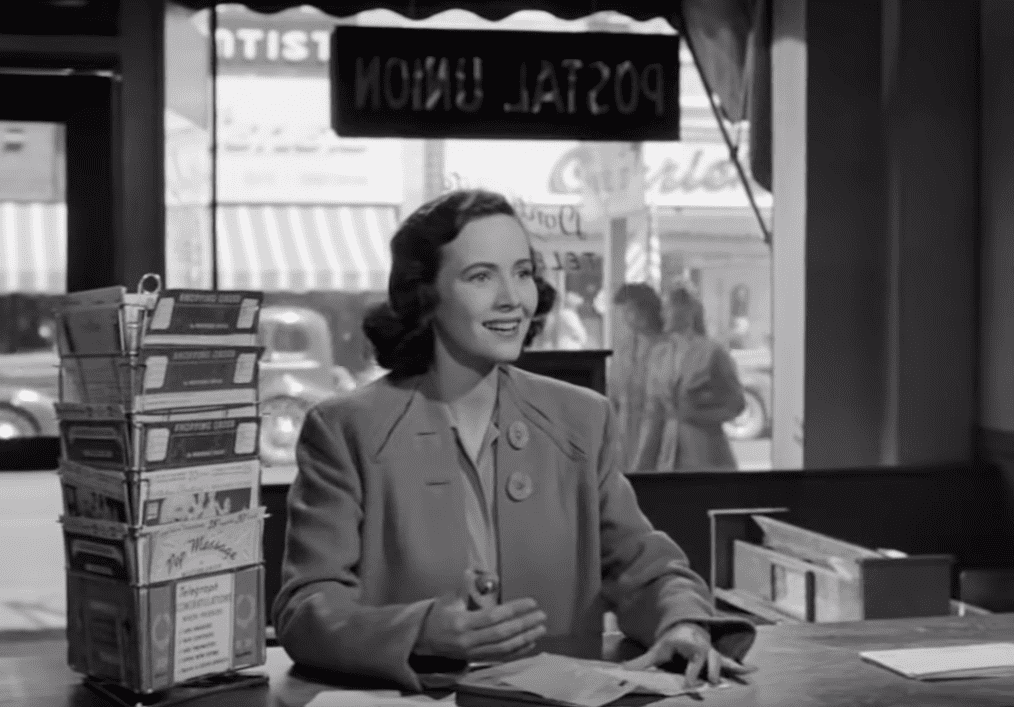 Shadow of a Doubt (1943), Universal Pictures
Shadow of a Doubt (1943), Universal Pictures
30. All He Did Was Win
Alma's health scare came at the undeniable peak of Hitchcock's career. He followed up Vertigo with North by Northwest, starring Cary Grant, in 1959. Both are considered some of his best work—and yet, in 1960, he still managed to top himself with a little movie called Psycho.
31. He Changed Horror Forever
Don't talk to a film geek about Psycho, or they will spend hours detailing how its disturbed killer, innocent victims, and unprecedented brutality changed the landscape of horror forever. I'll spare you such a lecture, but suffice it to say: Psycho was the height of Alfred Hitchcock's entire career—and not just because it was good. It also made him stinking rich.
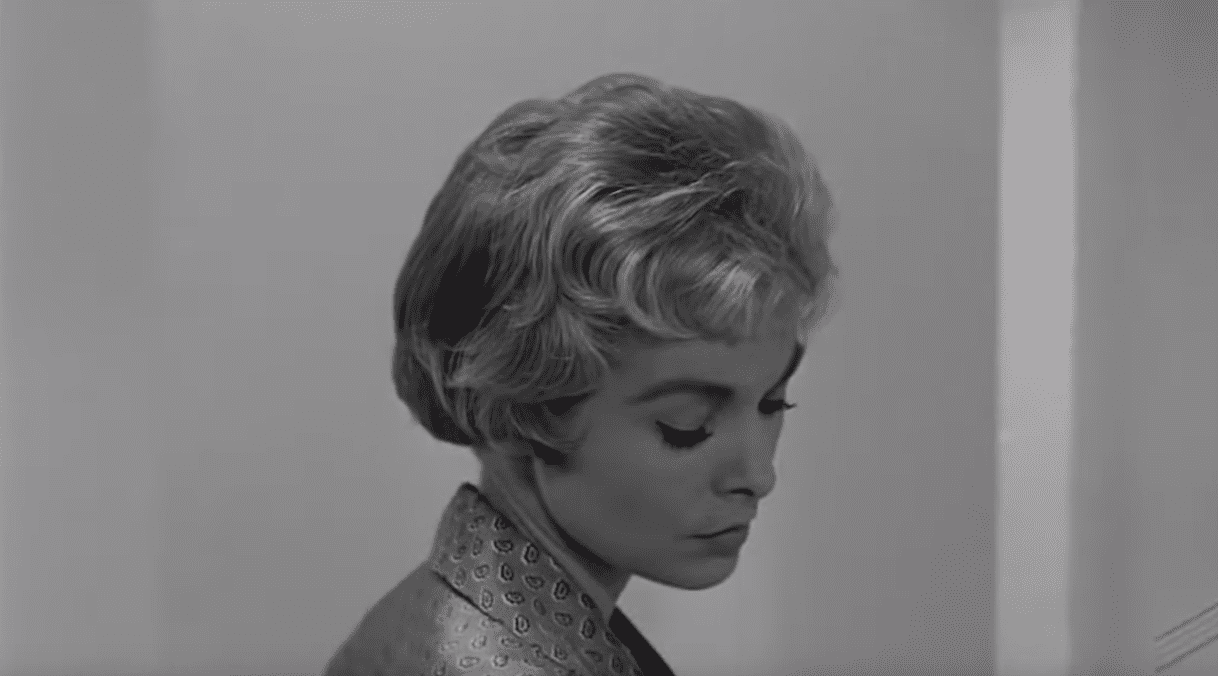 Psycho (1960), Paramount Pictures
Psycho (1960), Paramount Pictures
32. He Was A Crossover Success
Hitchcock was one of the most respected filmmakers in the world, but he wasn't exactly setting records at the box office. Psycho, on the other hand, was a smash hit. Filmed on a relative shoestring, the film raked in $30 million in ticket sales, which would be more than $300 million today. The man himself made out like a bandit, too; Hitchcock personally earned $15 million of that.
Alfred Hitchcock was on top of the world. But here's the thing about peaks: It's all downhill from there.
33. He Found His Next Muse
Don't worry—Hitchcock didn't go straight from the top to the bottom. He wanted to make another movie with Grace Kelly, but she asked him to postpone the project. In the meantime, he decided to make a film based on Daphne du Maurier's short story, "The Birds". He couldn't have Kelly, but he found a new doll to play with: Her name was Tippi Hedren.
She must have thought landing a role in a Hitchcock movie was like a dream come true. Little did she know, it was more like a nightmare.
34. They Seemed To Work Well Together
Alfred Hitchcock soon grew dangerously obsessed with Tippi Hedren, but no one could deny that he got a great performance out of her in The Birds. When Grace Kelly decided she wouldn't return to acting, it was a no-brainer to cast Hedren in his follow-up, Marnie. The movie wasn't a hit like Psycho or The Birds, but it was by no means a disaster.
It seemed like the Hitchcock/Hedren collaboration was still going strong—so why did they never make a third movie together? The reason why wouldn't come out until years after Hitchcock's demise.
35. He Reached New Depths
Alfred Hitchcock was officially spiraling. His movies were getting worse and worse receptions, and he couldn't recreate the box office magic of Psycho. Then came 1972's Frenzy, maybe the most depraved movie he ever released. The film, about a psychopath on a rampage in London, saw Hitchcock push the limits of good taste.
One scene has been called "one of the most repellent examples of a detailed murder in the history of film". It was so repellant that the actor refused to even appear in it, forcing Hitchcock to use a body double. It felt like something had...changed for Alfred Hitchcock. And it's not like he had time to fix it.
36. His Time Ran Out
Frenzy ended up being Alfred Hitchcock's penultimate film. In 1976, he released Family Plot. The movie was a meager critical and box office success—not too shabby considering Hitchcock was nearing 80. But after that, his health—which had never been great—took its final turn for the worse. He spent four years trying to get one last film off the ground, but he never got time to make it.
Alfred Hitchcock passed on April 29, 1980, in his Bel Air home. He died a legend of cinema—but his darkest secrets still had to come out.
37. He Didn't Treat Actors Well
Though Hitchcock's reputation as a filmmaker was sterling, everyone knew one thing: He didn't exactly treat his actors well. He infamously once quipped that "actors should be treated like cattle". In fact, as an act of protest, actress Carole Lombard once brought three cows to one of Hitchcock's films. Each one was wearing a different nametag: Carole Lombard, Robert Montgomery, and Gene Raymond. One for each of the movie's lead actors.
But that was all in good fun, right? At the end of the day, most actors spoke highly of Hitchcock—except for one. It's time to talk about what happened between Alfred Hitchcock and Tippi Hedren.
38. She Wanted To Learn
Before Hitchcock cast her in The Birds, Tippi Hedren was a complete unknown. When she got the part, she couldn't believe her luck and quickly threw herself into the production. For an aspiring actress, Hedren was in heaven. She tried to learn as much as possible about filmmaking—and lucky her, Alfred Hitchcock, one of the most famous directors on Earth, was more than happy to teach her.
Hedren remembered the early days of filming The Birds as a wonderful experience—but soon, she realized that Hitchcock wasn't the man she thought he was.
39. He Controlled Her
Hedren's schedule on The Birds was grueling. She only got one afternoon off a week—and even that Hitchcock only gave her begrudgingly. He started telling her what she should wear and what she should eat. Young and naive, Hedren might have thought this was normal for a director—but it definitely was not. And Hitchcock was only going to get worse as filming went on...
40. He Turned Cold
At first, Alfred Hitchcock was kind and nurturing to Hedren. Pretty soon, though, she was cattle like all the others. When filming the final bird attack scene, Hedren got the courage to ask the director what her character's motivation was for going upstairs. His response was cold and flat: "Because I tell you to". But if being slightly rude was the worst thing Hitchcock had done to her that day, she'd have gotten off easy.
41. He Tricked Her
Even if you haven't seen it, you can probably guess what The Birds is about. There's a woman, and birds attack her. Well, before filming, Hitchcock assured Hedren that all the birds would be fake. As soon as the first bird hit her, she realized she's been lied to. The bird was very alive—and very angry. The crew clamped the birds' beaks shut with elastic bands. I doubt Hedren even had time to notice as teamsters whipped doves at her head.
For five straight days, crew members wearing thick, leather gloves heaved dozens of gulls, crows, and ravens at Hedren. It was only a matter of time before something snapped.
42. He Completely Broke Her
It's a miracle it took as long as it did, but eventually, one of those birds gouged a wicked cut across Hedren's face, just barely missing her eye. In that moment, Hitchcock finally broke her. She had a total breakdown on set, bursting into jagged sobs that left her unable to continue filming. A doctor saw her—and couldn't believe what Hitchcock had put her through.
The doctor ordered a week's rest. When Hitchcock protested, the doctor snapped back, "Are you trying to kill her?" Hedren got her rest—but she wasn't free from her nightmare.
43. She Kept It A Secret
Most people assumed you could chalk Hedren's breakdown up to the barrage of birds—and she didn't do anything to suggest otherwise. No one knew she was hiding a terrible secret; one that was slowly eating her up inside. Then, in 1983, she finally got the chance to tell her story. That year, a biographer published, The Dark Side of Genius, which sought to get to the bottom of the disturbing rumors about the recently departed Alfred Hitchcock.
The author reached out to Hedren. He hoped to get her to speak about her relationship with Hitchcock candidly for the first time. Hedren, whose career had completely fizzled after she stopped working with Hitchcock, agreed. She'd stayed silent long enough.
44. Before The Fire, There Was Smoke
Donald Spoto, Hitchcock's biographer, had already done some digging, and he started to realize just how upsetting Hitchcock's behavior towards Hedren had been. He interviewed crew members and learned that, after Hedren left set, Hitchcock had her followed. He kept close tabs on all of her activities, whether she was working or not.
Hitchcock also isolated her from the entire cast and crew. Absolutely no one else was allowed to talk to her. His actions had already gone far beyond what was acceptable for a director—and yet he kept pushing.
45. He Didn't Let People Touch Her
Though no one on the set knew just how bad things got for Hedren, everyone knew that Hitchcock was obsessed with her. Not only could no one talk to her, but he frequently reminded everyone on set that no one was allowed to even touch her—except for him, of course. This behavior was all manipulative and isolating, but one could argue that maybe this was all just his way of getting the best performance out of her.
We can't say that about this next part...
46. He Forced Himself On Her
It's a story as old as Hollywood: The rich, powerful director forces himself on the young, naive ingenue. For Hedren, it happened when Hitchcock had her alone in the back of a car as they drove to set. She may have been naive, but Hedren finally saw the truth: This was not normal, and this was not acceptable. But what could she do?
47. She Was Trapped
Tippi Hedren sought advice about what to do about Hitchcock, but she soon came to the same bleak realization that many actresses have: There was nothing she could do. She was a nobody, and he was Alfred Hitchcock. So she put up with it for the duration of the shoot. Then, the whirlwind press tour began. The Birds was a hit, and audiences loved Hedren.
Against her better judgment, she agreed to make another movie with Hitchcock. Maybe if she became a big enough star, she could escape him. But that's not how Hollywood works...
48. He Got Even Worse
Almost as soon as Hedren began filming Marnie, she realized that Alfred Hitchcock's obsession had only grown in the time since The Birds came out. He isolated her just like he did on The Birds. He wouldn't even allow her own young daughter to visit her on set. But now, he started forcing her to have a glass of champagne with him at the end of every single filming day.
And, if it's even possible, his advances started getting even creepier.
49. He Dreamt About Her
During one of his forced after-work drinks with Hedren, Hitchcock revealed he'd had a dream where she came up to him and said, "Hitch, I love you—I'll always love you". Hedren, flustered and uncomfortable, told him it was just a dream and got out of there. Unfortunately, there was still a lot of filming to go. She was going to have to continue to see him every day—and he still found new ways to make her uncomfortable.
50. He Whispered In Her Ear
Sometimes, before filming a scene, Hitchcock would pull Hedren aside, just out of earshot from the rest of the crew, and ask her to touch him. In Donald Spoto's, she revealed just how humiliating that was. But nothing could change the fact that he was Alfred Hitchcock, one of the most powerful men in Hollywood. Hedren knew if she got on his bad side, he could ruin her.
So, she put up with him as he got creepier and creepier—until finally, one day, he went too far.
51. She Made A Small Request
It all started when Hedren came to Hitchcock with a very simple request: She wanted one day off. The Tonight Show had invited her to come on, so she wanted to travel to New York to be on the show. I bet you can guess what Hitchcock said: A big fat no! He insisted that even a single day off would ruin her performance. But before that meeting finished, Hitchcock crossed a line that he had never crossed before.
52. He Propositioned Her
Aside from forcing himself on her in the back of that car, Hitchcock hadn't yet been overt with his desires. He was a married man, after all! Well, apparently, something had changed. Point blank, he finally propositioned Tippi Hedren. Usually, he used innuendo, so that Hedren could either play dumb or change the subject. Not this time.
But he didn't just ask for a quick roll in the hay. No—Hitchcock's obsession had officially reached its peak.
52. He Wanted Her All To Himself
According to Hedren, Hitchcock didn't just proposition her: He demanded that she make herself "sexually available and accessible to him—however and whenever and wherever he wanted". Finally, Hedren couldn't blow it off any longer. She flatly refused his advances, and Hitchcock blew his top. Soon, they were screaming at each other. Then finally, Tippi Hedren had had enough.
53. He Threatened Her
No matter what happened, Hedren just couldn't keep working with Alfred Hitchcock. She told him that Marnie would be the last time she'd work with him. She wanted out of her contract. Hitchcock told her exactly what he'd do if that happened: "I'll ruin your career". But at this point, for Hedren, anything was better than another instant under Hitchcock's thumb. She replied, "Do what you have to".
And so, Hitchcock did exactly what he said. He ruined her career.
54. He Ruined Her
Remember, Tippi Hedren wasn't yet a movie star. The Birds had been a hit, but that's one movie. She needed momentum to become a star—and Hitchcock stole that from her. He kept her trapped in her contract, but did nothing with it. Hedren sat around for two long years doing diddly squat. By the time she got to appear in another movie, she'd missed her chance to become a bonafide leading lady.
Alfred Hitchcock might have put her on the map with The Birds, but in the end, she'd have been better off never meeting him at all.
55. She Took Control Of Her Story
After The Dark Side of Genius came out, many actors came to Hitchcock's defense. The director's supporters cast doubt on Hedren's story. They claimed if she had been telling the truth, she would have come forward earlier. Naturally, people asked Hedren what took her so long, and her reply was simple: "It was embarrassing and insulting—there were a lot of reasons why I didn't want to tell the story. I didn't want it to be taken advantage of, twisted, turned, and made into an even uglier situation than it was".
But in the end, she got the chance to tell her story. Alfred Hitchcock was undeniably a genius director—but like it or not, Hedren's painful tale is just as much a part of his legacy as any film he made.

